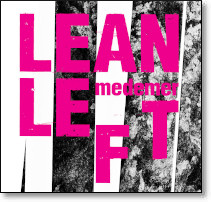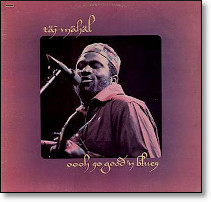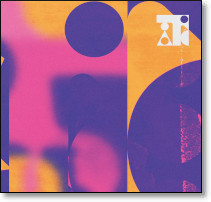Latest
2024
Jul
Jun
May
Apr
Mar
Feb
Jan
2023
Dec
Nov
Oct
Sep
Aug
Jul
Jun
May
Apr
Mar
Feb
Jan
2022
Dec
Nov
Oct
Sep
Aug
Jul
Jun
May
Apr
Mar
Feb
Jan
2021
Dec
Nov
Oct
Sep
Aug
Jul
Jun
May
Apr
Mar
Feb
Jan
2020
Dec
Nov
Oct
Sep
Aug
Jul
Jun
May
Apr
Mar
Feb
Jan
2019
Dec
Nov
Oct
Sep
Aug
Jul
Jun
May
Apr
Mar
Feb
Jan
2018
Dec
Nov
Oct
Sep
Aug
Jul
Jun
May
Apr
Mar
Feb
Jan
2017
Dec
Nov
Oct
Sep
Aug
Jul
Jun
May
Apr
Mar
Feb
Jan
2016
Dec
Nov
Oct
Sep
Aug
Jul
Jun
May
Apr
Mar
Feb
Jan
2015
Dec
Nov
Oct
Sep
Aug
Jul
Jun
May
Apr
Mar
Feb
Jan
2014
Dec
Nov
Oct
Sep
Aug
Jul
Jun
May
Apr
Mar
Feb
Jan
2013
Dec
Nov
Oct
Sep
Aug
Jul
Jun
May
Apr
Mar
Feb
Jan
2012
Dec
Nov
Oct
Sep
Aug
Jul
Jun
May
Apr
Mar
Feb
Jan
2011
Dec
Nov
Oct
Sep
Aug
Jul
Jun
May
Apr
Mar
Feb
Jan
2010
Dec
Nov
Oct
Sep
Aug
Jul
Jun
May
Apr
Mar
Feb
Jan
2009
Dec
Nov
Oct
Sep
Aug
Jul
Jun
May
Apr
Mar
Feb
Jan
2008
Dec
Nov
Oct
Sep
Aug
Jul
Jun
May
Apr
Mar
Feb
Jan
2007
Dec
Nov
Oct
Sep
Aug
Jul
Jun
May
Apr
Mar
Feb
Jan
2006
Dec
Nov
Oct
Sep
Aug
Jul
Jun
May
Apr
Mar
Feb
Jan
2005
Dec
Nov
Oct
Sep
Aug
Jul
Jun
May
Apr
Mar
Feb
Jan
2004
Dec
Nov
Oct
Sep
Aug
Jul
Jun
May
Apr
Mar
Feb
Jan
2003
Dec
Nov
Oct
Sep
Aug
Jul
Jun
May
Apr
Mar
Feb
Jan
2002
Dec
Nov
Oct
Sep
Aug
Jul
Jun
May
Apr
Mar
Feb
Jan
2001
Dec
Oct
Sep
Aug
Jul
Jun
May
Apr
Mar
Feb
Tuesday, August 31, 2021
Daily Log
Looking for Lee "Scratch" Perry recommendations, which led me to these links:
Lee 'Scratch' Perry: 10 of his greatest recordings, to wit:
- Bob Marley - Small Axe
- The Upsetters - Blackboard Jungle Dub (Version 1/Black Panta)
- Junior Murvin - Police and Thieves
- The Congos - Children Crying
- The Upsetters - Tell Me Something Good
- Lee Perry - Curly Locks
- Lee "Scratch" Perry - Introducing Myself
- Lee "Scratch" Perry & Mad Professor - I'm Not a Human Being
- Lee "Scratch" Perry - Headz Gonna Roll (feat. George Clinton)
- Lee "Scratch" Perry - African Hitchiker
Rob Kenner: 11 Great Lee "Scratch" Perry Recordings: A Musical History:
- Lee Perry: People Funny Boy (1968)
- The Upsetters: Return of Django (1968) [***]
- Bob Marley & the Wailers: Soul Rebels (1970)
- The Upsetters: Blackboard Jungle Dub (1973)
- Max Romeo & the Upsetters: War Ina Babylon (1976) [A-]
- The Upsetters: Super Ape (1976) [A-]
- Junior Murvin: Police and Thieves (1976) [B+]
- The Clash: Complete Control (1977)
- Bob Marley & the Wailers: Punky Reggae Party (1977)
- The Congos: Heart of the Congos (1977) [B+]
- Shinehead: Billie Jean (1984)
Michaelangelo Matos: Lee 'Scratch' Perry: 10 Essential Songs.
Patricia Meschino: Lee 'Scratch' Perry: How the Late Producer Changed the Direction of Music.
Jeff Terich: A Beginners Guide to Dub Pioneer Lee "Scratch" Perry.
Dan Weiss asked for "your non-xgau lee Perry reommendations - never understood how he didn't love heart of the congos." Albums mentioned in comments (my grades in brackets, as a check off list):
- Super Ape [A-]
- Return of Super Ape [**]
- Heavy Rain - "as good as Rainford"
- Blackboard Jungle Dub
- The Congos: Heart of the Congos [B+]
- Roast Fish Collie Weed & Corn Bread [A-]
- Scratch and Company: Chapter 1 - "paired with Blackboard Jungle as Scratch Attack on CD
- The Trojan Upsetter Box
- Africa's Blood [*]
- Double Seven
- Arkology [A-]
- Max Romeo & the Upsetters: War ina Babylon [B+]
- Junior Murvin: Police and Thieves [A-]
- Kung Fu Meets the Dragon
- "his stuff with Junior Byles"
- Open the Gate (Lee Scratch Perry and Friends)
- Out of Many -- the Upsetter
- Soundz from the Hot Line
- Lee Scratch Perry Presents . . . African Roots
- Super Ape Returns to Conquer
Monday, August 30, 2021
Music Week
 |
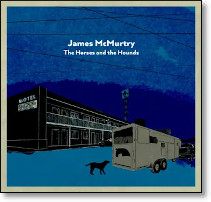 |
 |
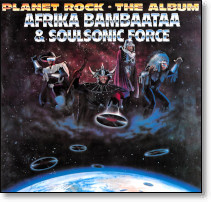 |
 |
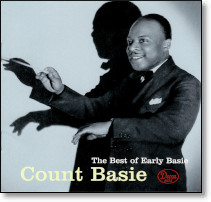 |
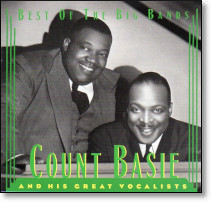 |
 |
 |
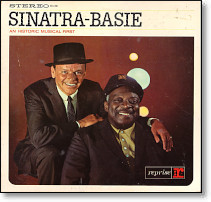 |
Expanded blog post, August archive (finished).
Tweet: Music Week: 49 albums, 10 A-list (3 new, 7 old), opens with another note on the politics surrounding Afghanistan, which I have more to say about than the recent deaths of Charlie Watts, Lee "Scratch" Perry, and Larry Harlow.
Music: Current count 36142 [36093] rated (+49), 226 [221] unrated (+5).
A couple weeks ago I wrote a critical comment on an egregiously bad piece by Matt Taibbi (on what he called The Vanishing Legacy of Barack Obama). Next week, Taibbi wrote a pretty good piece on the fall of Kabul, Afghanistan: We Never Learn. He always cultivated this idea that he could prove his independence by attacking "both sides" -- e.g., in The Great Derangement, he added a chapter attacking "9/11 truthers" as a left-wing analog to the right-wing crazies who gave him so much to write about -- but lately his ravings about mainstream media and centrist Democrats have become increasingly arbitrary and gratuitous, especially given how far off the deep end right-wing media and politicians have plunged. But the fact that many Democrats are wed to the dysfunctional fantasies of the military-security-mercenary complex gives him a chance to put his contrarianism to good use. And now, he's managed to merge his best insights with his worst instincts, in To Stop War, America Needs a Third Party.
Look, I voted for Ralph Nader in 2000. We had just moved to Kansas, and it was clear the Democrats didn't have the slightest interest in campaigning in Kansas. When I voted, the thought occurred to me that Nader might even outpoll Gore here. Well, I was wrong. Without trying, Gore got 11 times as many votes as Nader (399,276 to 36,086; although in Douglas County, the Gore/Nader ratio was down to 4). Even so, Gore lost to Bush by 20.8 points, had Gore received all of Nader's votes, the margin would only have dropped to 17.4. I've never blamed Nader for Gore losing, and I get irritated when other people do. Gore ran the campaign he chose to, figuring he would make up more center votes (and cash) than he could possibly lose to a left that New Democrats had nothing but contempt for. Even as the true horror of the Bush administration became evident after 9/11, I've never doubted that Gore would have gone to war as readily as Bush did. (Well, maybe not Iraq, which Bush had a peculiar hard on for, but Afghanistan was the original mistake.) While Nader wasn't especially concerned with foreign affairs, I'm pretty sure that he would have held back, preventing the 20-year debacle that's only now becoming obvious to many people. So, at least in that respect, the divide between Nader and Gore was more important than the difference between Gore and Bush.
Taibbi is right that both parties have deeply invested in the imperial military mindset. In some ways, the failure of Democrats to find any sort of alternative foreign policy is more galling. Republicans' core belief in using military power to cow poorer nations is consistent with their faith in using police and courts to trample poor and dissident people at home. Both intend to fortify and protect privilege classes, and are not tempered by concerns for democracy, freedom, or individual rights. You'd think that Democrats would understand that by now. (They've been slow on the uptake, but Republican efforts to rig elections finally seem to have caught their attention.)
You'd also expect that they'd reflect back on the principles and promise of international institutions, which they worked hard to establish under and after FDR. Yet even now we see Biden acting rashly and unilaterally to order the wanton death of drone strikes while still committed to exiting Afghanistan.
But Taibbi is dead wrong about third parties. What I realized in 2000 was that the people we needed to convince to support a progressive agenda had already committed to one party (the Democratic), in large part because the other (the Republicans) were clearly committed to causing them harm. That fundamental truth has only become more obvious since 2000. The other change is that the neoliberal clique that took over the Democratic Party with Clinton can and has been challenged, both in primaries and through public organization. We've made progress, but still need to make the case to rank-and-file voters, the media, and even the elites -- especially on war, which is hard to do as long as Americans are being deployed in conflicts, with inevitable casualties and hardships, and a tendency to get wrapped up in their putative heroism. It's hard to heal while you're still getting beat up.
It's painful to listen to bystanders and opportunists decry Biden's airlift from Kabul. Many of the loudest complainers shared responsibility for the slow-moving train wreck, so much so that it's rather astounding that they can still feign surprise. Before the 13 soldiers killed in a freak suicide bombing, the US had enjoyed a respite from conflict for over a year -- a result that was only possible thanks to negotiating with the Taliban. The hawks who wish to renege now (the same ones who complain about the present chaos) have no idea how bad the situation could deteriorate if the Taliban decided they'd have to once again fight Americans for their freedom. One can always nitpick, but I'm actually impressed that Biden is handling this as well as he has -- and I'm disgusted with those who think otherwise.
I have very little to add about the recent deaths of Charlie Watts and Lee Perry. I've read much less about the death of Larry Harlow, a major figure in the development of salsa in New York. But I haven't listened to him much myself. My grade list for Perry is here.
A lot of old music this week, as I fell back on the unheard Christgau A-list, going back to the top after I lost my place. Some records there I skipped over during my first pass.
Finished Rana Foroohar's Don't Be Evil: The Case Against Big Tech, with mixed feelings I should probably try to articulate at some point. I'm especially bothered by her evident belief that stronger patent laws would increase competition, at least by making it easier for some other company to challenge the FAANG giants. I think that's exactly wrong. I also doubt her assertion that information is the new oil -- the comparison to railroads isn't quite as far off. Oil converted to energy which turned into a huge increase in the amount of work people could do, so it mostly added to the world's wealth. Information may help companies exploit people more efficiently, but it's ultimately more redistributive than not. That's why I expect we'll see diminishing returns from information technology.
On the other hand, I think the case that Foroohar makes about how the big FAANG companies depress innovation is valid. I'd like to see them partially broken up, but I don't think competition is a solution in and of itself. A lot of things that these networking companies do shouldn't be done at all. That can be addressed through a combination of regulating harmful activities, replacing useful ones with open source software, and subsidizing common infrastructure.
Afterwards, I picked up Ed Ward's The History of Rock & Roll: Volume One 1920-1965. As with similar books, a lot of emphasis early on is put on labels and entrepeneurs, which makes an interesting contrast after reading about the FAANG monopolies. But rock & roll is a pretty good example of what capitalism is actually good for.
August had five Mondays and nothing better to do, so this month's Streamnotes compilation is one of the largest ever.
New records reviewed this week:
- Iggy Azalea: The End of an Era (2021, Bad Dreams/Empire): [r]: A-
- Alan Broadbent/London Metropolitan Strings: Broadbent Plays Brubeck (2021, Eden River): [r]: B+(*)
- Greg Burk/Ron Seguin/Michel Lambert: Sound Neighbors (2020, Tonos): [cd]: B+(***)
- Greg Burk: Simple Joys (2019 [2021] Tonos): [cd]: B+(*)
- Xhosa Cole: K(no)w Them, K(no)w Us (2021, Stoney Lane): [bc]: B+(**)
- Lorraine Feather: My Own Particular Life (2019-21 [2021], Relarion): [cd]: B+(*)
- Bob Gorry/Pete Brunelli/Peter Riccio: GoBruCcio (2021, NHIC): [cd]: B+(**) [09-01]
- Halsey: If I Can't Have Love, I Want Power (2021, Capitol): [r]: B+(***)
- Inawhirl: Streugebilde (2020 [2021], Trost): [bc]: B+(*)
- Jake Breaks: Breaksy (2021, Wide Hive): [cd]: B+(*)
- Ka: A Martyr's Reward (2021, Iron Works): [yt]: B+(***)
- James McMurtry: The Horses and the Hounds (2021, New West): [r]: A-
- Roscoe Mitchell: Dots: Pieces for Percussion and Woodwinds (2021, Wide Hive): [cd]: B+(**)
- Ali Shaheed Muhammad & Adrian Younge: Jazz Is Dead 8: Brian Jackson (2021, Jazz Is Dead): [r]: B+(*)
- Nelly: Heartland (2021, Columbia, EP): [r]: B+(*)
- Kevin Sun: <3 Bird (2021, Endectomorph Music): [cd]: A-
- Tinashe: 333 (2021, Tinashe Music): [r]: B+(***)
- Jim Yanda: A Silent Way (2019 [2021], Corner Store Jazz, 2CD): [cd]: B+(***)
Recent reissues, compilations, and vault discoveries:
- Peter Brötzmann: Love Comes Like Sour to Milk (1993, Trost, EP): [bc]: B
- Jan & Dean: Filet of Soul Redux: The Rejected Master Recordings (1966 [2017], Omnivore): [r]: B
Old music:
- ABC: Beauty Stab (1983, Mercury): [r]: B+(*)
- The Allman Brothers Band: Live at Fillmore East (1971, Capricorn): [r]: B
- The Allman Brothers Band: The Best of the Allman Brothers Band -- Live [20th Century Masters: The Millennium Collection] (1971 [2007], Mercury/Chronicles): [r]: B+(***)
- The Allman Brothers Band: The Road Goes On Forever: A Collection of Their Greatest Recordings (1969-73 [1975], Capricorn): [yt]: B+(***)
- The Allman Brothers Band: The Best of the Allman Brothers Band [20th Century Masters: The Millennium Collection] (1969-79 [2000], Polydor): [r]: B+(***)
- Amadou & Mariam: Je Pense À Toi: The Best of Amadou & Mariam (1998-2002 [2005], Circular Moves/Universal Music Jazz): [r]: B+(***)
- Archers of Loaf: Archers of Loaf Vs. the Greatest of All Time (1994, Alias, EP): [r]: B+(**)
- Archers of Loaf: The Speed of Cattle (1992-94 [1996], Alias): [r]: B+(*)
- Archers of Loaf: Vitus Tinnitus (1997, Alias, EP): [r]: B+(**)
- Ashford & Simpson: So So Satisfied (1977, Warner Brothers): [r]: B+(***)
- Ashford & Simpson: Send It (1977, Warner Brothers): [r]: B+(**)
- Ashford & Simpson: Stay Free (1979, Warner Brothers): [r]: B+(*)
- Ashford & Simpson: Solid (1984, Capitol): [r]: B+(*)
- Bad Religion: All Ages (1982-94 [1995], Epitaph): [r]: B
- Afrika Bambaataa & Soulsonic Force: Planet Rock: The Album (1982-84 [1986], Tommy Boy): [r]: A-
- Bang on a Can: Bang on a Can Meets Kyaw Kyaw Naing (2005, Cantaloupe): [bc]: A-
- Count Basie: The Best of Early Basie (1937-39 [1996], MCA): [r]: A
- Count Basie: Count Basie and His Great Vocalists (1939-50 [1993], Columbia/Legacy): [r]: A-
- Count Basie: Frankly Basie: Count Basie Plays the Hits of Frank Sinatra (1963 [1993], Verve): [r]: B+(*)
- Count Basie: Basie Jam (1973 [1975], Pablo): [r]: B+(*)
- Count Basie/Joe Turner: The Bosses (1973 [1974], Pablo): [r]: B+(***)
- Count Basie/Oscar Peterson: Count Basie Encounters Oscar Peterson: Satch and Josh (1974, Pablo): [r]: B+(**)
- Count Basie/Zoot Sims: Basie and Zoot (1975 [1976], Pablo): [r]: B+(***)
- Count Basie: Get Together (1979 [1986], Pablo): [r]: B+(***)
- The Bats: Compiletely Bats (1984-86 [1987], Communion): [bc]: B+(**)
- Delta 5: Singles & Sessions 1979-81 (1979-81 [2006], Kill Rock Stars): [r]: A-
- Ella Fitzgerald/Count Basie/Joe Williams: One O'Clock Jump (1956-57 [1999], Verve): [r]: B+(*)
- Jeannie C. Riley: Harper Valley P.T.A. (1968, Plantation): [r]: A-
- Jeannie C. Riley: Yearbooks and Yesterdays (1969, Plantation): [r]: B+(**)
- Frank Sinatra/Count Basie: Sinatra-Basie (1962, Reprise): [r]: A-
Unpacking: Found in the mail last week:
- Rodrigo Amado Motion Trio & Alexander von Schlippenbach: The Field (NoBusiness)
- Lao Dan/Deng Boyu: TUTU Duo (NoBusiness) [08-30]
- Amir ElSaffar/Rivers of Sound: The Other Shore (Outnote) [09-10]
- Joe Fiedler's "Open Sesame": Fuzzy and Blue (Multiphonics) [11-12]
- Joel Futterman: Creation Series (2008, NoBusiness, 5CD)
- Frode Gjerstad/Kent Carter/John Stevens: Detail-90 (1990, NoBusiness) [08-30]
- Lionel Loueke: Close Your Eyes (2018, Sounderscore) [10-22]
- Szilard Mezei Tubass Quintet: Rested Turquoise (NoBusiness)
- Liudas Mockunas/Christian Windfeld: Pacemarker (NoBusiness) [08-30]
- Bryan Murray & Jon Lundbom: Beats by Balto! Vol. 2 (Chant) [11-07]
- Itaru Oki Quartet: Live at Jazz Spot Combo 1975 (NoBusiness)
- Sam Rivers Quartet: Undulation (1981, NoBusiness)
- Mototeru Takabi/Susumu Kongo/Nao Takeuchi/Shola Koyama: Live at Little John, Yokohama 1999 (NoBusiness)
- Total Music Association: Walpurgisnacht (1971, NoBusiness)
- Yuma Uesaka and Marilyn Crispell: Streams (Not Two) [10-15]
Friday, August 27, 2021
Speaking of Which
Tweet: Speaking of Which: Approaching deadline, the withdrawal from the Afghanistan misadventure gets nervous and kvetchy, with warmongers and opportunists clinging to their mikes like those poor wretches thinking they could hang onto departing aircraft.
My interest in writing something this week has waxed and waned. At first I wanted to point out how pleased and proud I am that Biden has stuck to his guns on troop withdrawal from Afghanistan, despite the barrage of sniping not just from the usual quarters (Republicans for partisan purposes, warmongers of all stripes) but from a mainstream media that loves to add fuel to whatever panic is taking hold at the moment. Then an anti-US, anti-Taliban fringe group [also see: Anatol Lieven: Who are the Islamic State in Afghanistan] dispatched a suicide bomber near the Kabul airport, killing 170 civilians and 13 US troops, and Biden vowed revenge (while still defending withdrawal). Someone should take him aside and remind him that "revenge is a dish best served cold," lest he throw out a brave and conscientious stand in a fit of anger. ISIS wants the US there, in range as targets, driving more and more people into their desperate ranks. It was stupid to let Osama Bin Laden bait us into "the graveyard of empires" in 2001, and it would be even stupider to repeat that mistake now. [PS: Biden did order a drone strike in Nangahar Province, allegedly on an ISIS target.]
While Biden hasn't (yet) back-peddled from the August 31 withdrawal date, it's coming on Tuesday, so we'll know more then -- one reason I wanted to hold off writing. Meanwhile, pressure to do something stupid is building: e.g., Leon Panetta, a CIA Director and Secretary of Defense under Obama, says "Bottom line is that our work is not done in Afghanistan. We're going to have to go back in to get ISIS." I don't know how he could possibly imagine that could work. The US is tied up just now trying to get the few Afghans willing to help the US out of the country. How can they possibly support a new infusion of troops without any kind of local support? The only chance I see to hunt down "those responsible" for the attack is to subcontract it to the Taliban. I have no idea whether they would be amenable to that, but from a practical point of view, it's more important to get them to disband terror groups than to satisfy America's revenge cravings.
Speaking of irrational revenge fits, Josh Marshall has another good piece on the origins of the US invasion of Afghanistan: Remembering the Origins of the United States' 20 Year War in Afghanistan, in turn keying off an opinion piece by persistent warmonger Robert Kagan: It wasn't hubris that drove America into Afghanistan. It was fear. While it may be true that fear was the big selling point, I remember a lot of hubris. I also remember Arthur Vandenberg telling Harry Truman that if he wants to arm to confront Russia in what became the Cold War, he'd first have to "scare the hell out of the American people." That's what he did, aided by Republicans who had their own reasons for trumping up the Red Scare. But after the Gulf War of 1990-91, America's leading hawks (including Kagan) were convinced that the US military could have done so much more to clear out Saddam Hussein in Iraq, but were held back by cowardly politicians. The hawks stylized themselves as Vulcans (see James Mann's book, The Rise of the Vulcans: The History of Bush's War Cabinet), and organized their Project for a New American Century (PNAC). (By the way, the first thing they did was to prepare a plan for Netanyahu to undermine the Oslo Accords, which promised to end the Israeli-Palestinian conflict. Their most fervent dream was that the US should be free to attack its enemies with the same impunity Israel had gotten away with.)
Marshall corrects a lot of things Kagan glosses over. Along the way, he quotes Max Boot as writing: "Afghanistan and other troubled lands today cry out for the sort of enlightened administration once provided by self-confident Englishmen in jodhpurs and pith helmets." That sounds a lot more like hubris than fear, but it also sounds incredibly stupid and racist. British rule reduced India from about 20% of world GDP to less than 5% -- meanwhile, the English working class weren't exactly wallowing in luxury. Imperialism may have benefited someone, but claiming it advanced humanity is ridiculous.
As it happens, I've been thinking about Boot's 2002 book, The Savage Wars of Peace: Small Wars and the Rise of American Power. The book was an important part of the neocon argument, specifically meant to overthrow the Powell Doctrine (which argued that wars should only be fought if you had: overwhelming force, clear objectives, and an exit plan; the 1990-91 Gulf War was Powell's triumph, but the aftertaste was bitter). Boot offered thumbnail histories of several dozen US military adventures that he classified as "small," excluding wars fought on home ground (including the many Indian wars), the two World Wars, and the ones in Korea and Vietnam that got big and ugly. From his subset, he argued that the US doesn't need to worry about small wars (resources, objectives, exit plan), because they all work out OK in the end. Within 2-3 years, Afghanistan and Iraq destroyed what little plausibility his argument ever had, but a more critical eye on the wars he touted should have raised doubts.
Take, for instance, Pershing's long march through Mexico following a border raid by Pancho Villa in New Mexico (it was originally called the "Punitive Expedition"). This lasted about a year, needlessly provoked the Mexicans, and in the end accomplished absolutely nothing (other than that it convinced a young officer named Dwight Eisenhower that the US needed better highways). It's a pretty close analog to the effort to catch Bin Laden (or Panetta's proposed punishment of ISIS-K), except that it was much closer, and didn't bother trying to over throw the Mexican government, or getting stuck with rebuilding the ruins it created. But sure, it could have been worse. They could still be looking for Villa, while turning millions of Mexicans into refugees.
By the way, amidst all of the articles about Afghans trying to flee the Taliban, I haven't seen a single piece about the more than two million Afghan refugees that the US wasn't able to settle and protect during the last 20 years. Most are in Pakistan or Iran, so it will be interesting to see whether the net number of refugees rises or drops once the Taliban settles in.
Marshall's article includes a graph of US troop levels in Afghanistan over time. Offhand, it appears as though the security situation deteriorated as US troop levels increased, at least up to 2009, when the military panicked and Obama ordered a "surge" up to 100,000 troops. The model there was the supposedly successful "surge" in Iraq, although what little success could be found there had more to do with turning Sunni leaders against an increasingly erratic Al-Qaeda-in-Iraq, partly through bribe and partly because the US offered some protection against Shiite death squads (also encouraged by the US). No such magic switch was found in Afghanistan, so while the "surge" may have checked a Taliban offensive, it made no headway.
Beyond that, McChrystall's counterinsurgency program was defeated not by the Taliban but by American soldiers, who refused to accept the added risk of limiting civilian casualties. While Petraeus had supported McChrystall in theory, he quietly scuttled the program when he took over. After that, the only hope was "Afghanization," which worked even worse than "Vietnamization" had done to provide camouflage for a US withdrawal.
Some more Afghanistan links:
Eli Clifton: How the defense industry helped prolong the war in Afghanistan.
Hunter DeRensis: Separated by a century: The doomed narcissism of Generals Petraeus and Miles. Another history lesson kicked off by a Max Boot quote. Miles fought in the Civil War, on the plains against Indians, and eventually in the Spanish-American War, failing up every step of the way.
Ben Jacobs: The Shocking New Book That Exposes US Lies About Afghanistan: Review of Craig Whitlock's The Afghanistan Papers.
Emile Nakleh: What we do not yet know about the Taliban and its Sharia rule.
James Risen: A War's Epitaph: "For two decades, Americans told one lie after another about what they were doing in Afghanistan."
Storer H Rowley: The Media's Premature Verdict on Biden's Afghanistan Pullout.
Nick Turse: The Fall of Kabul: "Joe Biden claimed 'zero' parallels between US withdrawals from Afghanistan and Vietnam. As the Taliban take Kabul, he's proved wrong." [PS: Didn't read, as I didn't get past "not a paywall."]
Kelley Beaucar Vlahos: When opportunity knocks: Erik Prince pops up in Afghanistan chaos.
Also, a quote from Jeffrey St. Clair: Roaming Charges: Hour of the Goat, which says much of what I originally wanted to say:
One of the reasons Biden is having such a hard time making the case for the US's exit from Afghanistan is that he is congenitally inarticulate and he has no one around him who can make the case for him. Nearly everyone in both parties has been corrupted by this war: voted for it, funded it, planned it, rationalized it, stood silent as it started, very early on, to go bad, closed their eyes to drone killings, torture, and an occupation with no end. Even Bernie Sanders and Ron Paul. They own this war and the war ended up owning them. Aside from Barbara Lee, there aren't any heroes in this 40-year-long fiasco. But if Biden can stand firm as he's ambushed from all sides, not retreat from his retreat, and finally bring the occupation to an end, he'll go down in the history books a lot more credibly than the jackals who are assailing him.
St. Clair also notes a tweet from a @toddstarnes: "For every American who is killed, a city in Afghanistan should be wiped off the face of the Earth." The Romans used to talk about "decimating" villages. Hitler proclaimed bounties like this, up to 100-to-1. Morally Starnes is no better; mathematically, he's even worse.
A couple more brief notes on recent pieces:
Robert Christgau: Out of the Box: A substantial and very favorable review of the HBO Max documentary Betrayal at Attica. I should probably write more about this piece and the movie itself, which I watched again yesterday, but want to get this out without further delay. By all means, do watch the movie.
Luisa S Deprez: How Republicans Stoke Anti-Government Hatred: Refers to a new book by Amy Fried/Douglas B Harris: At War With Government: How Conservatives Weaponized Distrust from Goldwater to Trump. Needless to say, it's a lot easier to break trust than it is to restore it. Trust in government matters because it's the one institution that is capable of helping people without having a side angle or ulterior motive (mostly based on money, something obviously biased to them that has). The main reason many people don't vote their economic interests is that they don't trust politicians to deliver, ergo distrust in government favors those with money, especially those whose money buys them personal connections to politicians. Adolph Reed extends this argument: The Whole Country is the Reichstag.
Henry Giroux: For Stanley Aronowitz: Radical labor historian, died a week or two ago. I read and admired his 1973 book False Promises: The Shaping of American Working Class Consciousness, and met him around then, when Paul Piccone brought him to Washington University for a lecture.
Hugh Iglarsh: The New Ozymandias: Twilight Reflections on the Obama Presidential Center. From this angle, the photo of the model of the "Great Tower of Nothing" looks especially garish.
David Klion: The 9/11 Museum and Its Discontents: "A new documentary goes inside the battles that have riven the institution." I'm not sure I even knew it existed, let alone had sold a half billion dollars worth of tickets since 2014. I find the whole thing rather creepy. "This is the story of 9/11 a visitor is left with: They attacked us for no good reason, we mourned, we rallied, and eventually we got the bastards [i.e., Bin Laden]."
Robert Kuttner: Biden Should Retire Fed Chair Jay Powell. When Trump replaced Janet Yellen (and I don't recall any Republicans suggesting he shouldn't pick his own Fed Chair), he was given a list of two candidates, and picked Powell. On paper, he looked like much the better candidate, and turned out to be better than expected, at least on monetary policy. (Not that he was loose enough for an inveterate debt-hog like Trump.) I always felt that Obama made a big mistake in renominating Ben Bernanke instead of picking a Democrat, but there was a big campaign to boost Bernanke, and Obama was a born sucker. There's another campaign this year to give Powell another term, and some economists I like (like Mike Konczal and Dean Baker) seem to be behind it, so I was interested to see Kuttner argue otherwise. He does so mostly on regulatory issues, and he's probably right there. One of the big problems with the Fed is that, while hawks on interest rates can choke the economy and put lots of people out of work, low interest rates mostly get sucked up by speculators and used to inflate the price of assets.
Ian Millhiser: A new Supreme Court case could blow up decades of US diplomacy: This is the case where a Texas judge ordered Biden to reinstate a Trump-declared "Remain in Mexico" immigration policy. Millhiser argues that "Kacsmaryk's decision is dead wrong," then gets even more upset.
Timothy Noah: The Blueprint for Corporate Power Turns 50: On Lewis Powell's famous letter to the US Chamber of Commerce, which urged corporate leaders to corrupt politics in favor of their class interests.
Aaron Rupar: How Ron DeSantis's Covid response became the model of what not to do.
Thursday, August 26, 2021
Daily Log
Someone on Facebook asked me if Mike is "any relation?" I replied:
Mike Hull is my brother's son. He grew up here in Wichita. He picked up some political and cultural biases from his family, but more important were the friends he formed at Wichita North High School. The district there straddles Wichita's "historic black neighborhood," so many of his closest friends are black, including later collaborators. Another of his closest friends is Jason Bailey, who is one of the world's great film nuts. Jason started writing and producing films with his high school friends, including Mike, who went on to write and produce his own. The films are pretty good, but never got into the commercial mill -- I don't know if you can even find them these days. Mike moved to NYC shortly after I moved back to Wichita, and Jason followed him a few years later, initially planning on studying film at NYU. He has a bunch of books on film now, and does a podcast with Mike called Fun City Cinema, where they talk about movies. I introduced Mike to people I knew in NYC, including Bob Christgau and Elizabeth Fink, but not much came of that until later, when Fink and him bonded, leading to this movie. Mike did a lot of work as a film editor in NYC (did the CBS News), while doing various side projects, mostly documentaries. He's been shopping this one around for several years, so we hope the deal with HBO Max will be a breakthrough. It really is an extraordinary film.
Tuesday, August 24, 2021
Daily Log
Tweet: I published one of my Q&A posts: the question was about Obama and his legacy, a result of my recent post on Matt Taibbi's trash post about Obama's 60th birthday bash, but it goes deeper into how he lost control, and why Trump came out the other end: link.
Posted an answer to a question about Obama and his legacy.
The following was occasioned by seeing a bunch of ballots for a Pitchfork poll, asking select critics for 25 albums for the last 25 years. Needless to say, they didn't ask me.
Top 25 non-jazz albums 1996-2020:
- Lily Allen: It's Not Me, It's You (2009, Capitol)
- Iris DeMent: The Way I Should (1996, Warner Bros.)
- Buck 65: Talkin' Honky Blues (2003, WEA Canada)
- Cornershop: Handcream for a Generation (2002, Beggars Banquet)
- John Prine: In Spite of Ourselves (1999, Oh Boy)
- Manu Chao: Clandestino (1998, Ark 21)
- Amy Rigby: Diary of a Mod Housewife (1996, Koch)
- DJ Shadow: The Private Press (2002, MCA)
- The Coup: Party Music (2001, 75 Ark)
- Todd Snider: The Devil You Know (2006, New Door)
- K'Naan: The Dusty Foot Philosopher (2008, IMCulture)
- Beck: Odelay (1996, DGC)
- Lyrics Born: Real People (2015, Mobile Home)
- Los Lobos: Colossal Head (1996, Warner Bros.)
- Maria Muldaur: Maria Muldaur & Her Garden of Joy: Good Time Music for Hard Times (Stony Plain)
- OutKast: Stankonia (2000, LaFace)
- Lucinda Williams: Car Wheels on a Gravel Road (1998, Polygram)
- The Ex: 27 Passports (Ex)
- Mavis Staples: We'll Never Turn Back (2007, Anti-)
- Jimmie Dale Gilmore: One Endless Night (2000, Rounder)
Top 25 jazz albums 1996-2020:
- James Carter: Chasin' the Gypsy (2000, Atlantic)
- David Murray: Long Goodbye: A Tribute to Don Pullen (1997, DIW)
- Sonny Rollins: This Is What I Do (2000, Milestone)
- Ornette Coleman: Sound Grammar (2006, Sound Grammar)
- Billy Bang: Prayer for Peace (2010, TUM)
- Irène Schweizer/Han Bennink: Welcome Back (2015, Intakt)
- Sonic Liberation Front: Ashé a Go-Go (2004, High Two)
- Billy Martin's Wicked Knee: Heels Over Heads (2013, Amulet)
- Steve Lehman: Mise en Abîme (2014, Pi)
- Billy Jenkins: True Love Collection (1997, Babel)
- Doc Cheatham/Nicholas Payton: Doc Cheatham and Nicholas Payton (1997, Verve)
- Vandermark Five: Target or Flag (1998, Atavistic)
- Digital Primitives: Lipsomuch/Soul Searchin' (2014, Hopscotch)
- Henry Threadgill Ensemble Double Up: Old Locks and Irregular Verbs (2016, Pi)
- William Parker Quartets: Meditation/Resurrection (2017, AUM Fidelity)
Monday, August 23, 2021
Music Week
 |
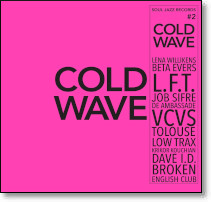 |
 |
 |
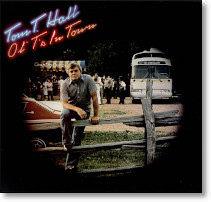 |
 |
 |
Expanded blog post, August archive (in progress).
Tweet: Music Week: 57 albums, 7 A-list, notes on recently departed, Tom T. Hall and Don Everly, digging through oldies crates from all over the map, and a few more words on Afghanistan -- notice how "our side" chose them over us?
Music: Current count 36093 [36036] rated (+57), 221 [218] unrated (+3).
Tom T. Hall died last week. Obituaries tended to overlook his 35 albums, but invariably mentioned the number one single he wrote in 1968, "Harper Valley PTA," for Jeannie C. Riley. Growing up in Wichita, I knew a little bit about country music -- mostly from watching, with bemused detachment, Porter Wagoner -- but I wasn't a fan. My brother and I got turned away at the door of a Grand Ole Opry show downtown, the doorman correctly surmising that we wanted the car show next door. I managed to catch a set by Ronnie & the Daytonas there: the first time I saw live music, and probably the only time until I saw Sly & the Family Stone in St. Louis.
That's was shortly after the first time I heard of Hall. I went to a party thrown by one of the Sociology professors. When I introduced myself to a guest, he responded: "I got all your records." I had a little speech problem, and never managed to say Hull clear enough not to be transcribed as the more common Hall. When I did finally hear Hall -- probably at the behest of George Lipsitz, who was taking time before going to graduate school, and was very much into country music at the time (although I also recall him introducing me to Rahsaan Roland Kirk and to Johnny Otis).
I only slowly got into country music, picking up occasional albums over the 1970s -- from Hall: We All Got Together and Faster Horses, finding In Search of a Song later -- finally making a serious effort in the 1990s to catch up with (damn near) everything I had missed. The best Hall compilation ever came out in 1988: The Essential Tom T. Hall: The Story Songs, 20 of them, originally on 2-LP, later on 1-CD. In 1995, I finally felt confident enough to write something about a new (and disappointing) Hall box, combined with a more favorable review of the 3-CD Roger Miller box. (Of course, I remembered Miller vividly from his mid-1960s TV show and crossover hits.) I called this Kings of the Road, and submitted it to The Voice, but elicited no interest (other than, I suppose, that a year later Robert Christgau invited me to review Rhino's series of jazz compilations, which I called Jazz for Dummies).
One thing I'd have to correct from the Hall piece is my claim Hall "hasn't recorded anything very interesting since [1976]." I finally got around to Hall's 1978-80 RCA releases below, and a couple of them are pretty good. I wanted to dive into his early Mercury records, but I only found In Search of a Song on Napster, plus Ballad of Forty Dollars on YouTube. There are some post-1978 Mercury albums on Napster, so I may return to them.
Another son of Kentucky died last week: Don Everly. He seemed like an earlier generation, but he was a year younger than Hall, and his brother Phil (d. 2014) was younger still. They started off in their teens in the Everly Family group, then as a brother act had their first big hits in 1957 ("Bye Bye Love" and "Wake Up Little Susie"), when Phil was 18. Beyond radio singles, my first introduction was 1964's The Very Best of the Everly Brothers -- disparaged now because they re-recorded their pre-1960 Cadence hits to juice up their less famous Warners songs, from "Cathy's Clown" to the ultra-maudlin "Ebony Eyes." I replayed it, and also Rhino's Cadence Classics, but didn't have much luck digging further, and didn't look into their solo careers or their reunion -- they were famous for not getting along.
Before Hall died, I mostly picked unheard records of Christgau's graded list, from Youssou N'Dour to Lobi Traoré. A couple reggae albums were suggested by a Sly & Robbie list of their favorites, but further down the list got hard to find. Tried to catch up with the demo queue, picking off the things with the earliest release dates, but wound up losing ground. Got a package from NoBusiness today. They'll be listed next week.
Bought a package of "shaved pork" last week. Seemed like the perfect thing for bulgogi. It's cut so thin you can't grill it. I dumped it into a cast iron skillet and boiled the marinade off. Pretty intense. Picture here
I saw a tweet recommending Josh Marshall: Notes from the Press Paroxysm as the Evacuation Flights Continue. I hadn't looked at TPM when I was writing up my Speaking of Afghanistan post last week because, well, most of what they publish is behind their firewall never struck me as worth the cost. (Also, I find it especially aggravating that much of what they hide consists of letters from readers, which presumably cost them nothing.) Still, it's a good article, both for pointing out that there is a substantial but rarely reported level of ongoing negotiation between the Taliban and virtually everyone, and for the term "press paroxysm." When I flipped through the Wichita Eagle this morning, I was appalled at the level of ignorance and cynical exploitation in everything they published on Afghanistan (and not just from columnists like Marc Thiessen, whose very existence is an affront to intelligence and human decency).
I tracked down a couple of earlier Marshall articles. You Wouldn't Know It From the US News Coverage, But . . . points out that the top US-backed Afghan politicos are all actively engaged in negotiating with the Taliban: Hamid Karzai, Abdullah Abdullah, even (from Doha) Ashraf Ghani -- who precipitated this Taliban offensive by refusing to negotiate while US troops remained, and who affirmed the government collapse by fleeing Kabul. On the media, see: The Fall of Kabul, Washington and the Guys at the Fancy Magazines. The latter talks about the "feeding frenzy" reporters are prone to: seeing a politician flounder, they're more than happy to jump in and take a few shots. (Kind of like how my dog gives chase only after she sees the other animal turn away.) Anyone who expects sober analysis from such creatures is bound to be disappointed.
For what it's worth, I'm delighted that Biden has taken a firm stand for withdrawal, showing both courage and a grounding in reality. He has far from an unblemished reputation on Afghanistan, but there's little value in bringing that up now that he's learned the lesson, except to underscore that the lessons are clear enough to convince even him. What I worry about is that in the current din we won't learn what we need to from this 20-year failure. Even if their complaints aren't accepted, the endless repetition of their shared delusions crowds out the clear thought we need.
New records reviewed this week:
- Daniel Carter: Playfield Vol. 1: Sonar (2020 [2021], Orbit577): [r]: B+(*)
- Daniel Carter: Playfield Vol. 2: The Middle (2020 [2021], Orbit577): [r]: B+(**)
- Daniel Carter: Playfield Vol. 3: After Life (2020 [2021], Orbit577): [r]: B+(*)
- Tom Cohen: My Take (2021, Versa Music): [cd]: B+(**)
- Paul Dunmall & Mark Sanders: Unity (2020 [2021], 577): [r]: B+(**)
- The Go! Team: Get Up Sequences Part One (2021, Memphis Industries): [r]: B+(***)
- Jared Hall: Seen on the Scene (2018 [2021], Origin): [cd]: B+(**)
- L.A. Cowboy: The Big Pitch (2021, Reconcile): [cd]: B
- Lorde: Solar Power (2021, Universal): [r]: B+(**)
- Francisco Mela: MPT Trio: Volume 1 (2020 [2021], 577): [r]: B+(**)
- Lady Millea: I Don't Mind Missing You (2021, Reconcile): [cd]: B+(*)
- Dave Miller Trio: The Mask-erade Is Over (2021, Summit): [cd]: B+(*)
- Steve Million: What I Meant to Say (2019 [2021], Origin): [cd]: B+(*)
- Mankwe Ndosi and Body MemOri: Felt/Not Said (2021, Auspice NOW): [cdr]: B+(*)
- Trineice Robinson: All or Nothing (2021, 4RM Music Productions): [cd]: B+(**)
- Kalie Shorr: I Got Here by Accident (2021, Tmwrk, EP): [r]: A-
- Alfie Templeman: Forever Isn't Long Enough (2021, Chess Club): [r]: B+(**)
- Waterparks: Greatest Hits (2021, 300 Entertainment): [r]: B+(*)
Recent reissues, compilations, and vault discoveries:
- Cold Wave #1 (2017-20 [2021], Soul Jazz): [r]: B+(**)
- Cold Wave #2 (2015-20 [2021], Soul Jazz): [r]: A-
- Paul Dunmall/Keith Tippett/Philip Gibbs/Pete Fairclough: Onosante (2000 [2021], 577): [r]: A-
Old music:
- Dave and Ansell Collins: Double Barrel (1971, Big Tree): [r]: B+(***)
- The Everly Brothers: Songs Our Daddy Taught Us (1958, Cadence): [yt]: B+(**)
- Tom T. Hall: Ballad of Forty Dollars and His Other Great Songs (1969, Mercury): [yt]: B+(**)
- Tom T. Hall: Greatest Hits, Vol. 2 (1971-75 [1975], Mercury): [r]: B+(***)
- Tom T. Hall: Greatest Hits: Volume I & II (1967-75 [1993], Mercury): [r]: A-
- Tom T. Hall: New Train Same Rider (1978, RCA Victor): [r]: B+(*)
- Tom T. Hall: Places I've Done Time (1978, RCA Victor): [r]: B+(***)
- Tom T. Hall: In Concert! Recorded Live at the Grand Ole Opry House (1979 [1983], RCA Victor): [r]: B
- Tom T. Hall: Saturday Morning Songs (1979, RCA Victor): [r]: B+(**)
- Tom T. Hall: Ol' T's in Town (1979, RCA Victor): [r]: A-
- Tom T. Hall: Soldier of Fortune (1980, RCA Victor): [r]: B+(*)
- Jackie Mittoo and the Soul Vendors: Evening Time (1968, Coxsone): [r]: A-
- Youssou N'Dour: Djamil Inédits 84-85 (1984-85 [1985], Celluloid): [r]: B+(*)
- Youssou N'Dour: Eyes Open (1992, Columbia): [r]: B+(***)
- Youssou N'Dour Et Le Super Etoile: Lii! (1996, Jololi): [yt]: B+(***)
- Negativland: Helter Stupid (1989, SST): [r]: B-
- Yoko Ono: Season of Glass (1981, Geffen): [r]: B+(***)
- Yoko Ono Plastic Ono Band: Between My Head and the Sky (2009, Chimera): [r]: B+(*)
- Yoko Ono Plastic Ono Band: Take Me to the Land of Hell (2013, Chimera): [r]: B+(***)
- Earl Scruggs & Tom T. Hall: The Storyteller and the Banjo Man (1982, Columbia): [r]: B+(**)
- Sly and Robbie: Sly and Robbie Present Taxi (1981, Mango): [r]: B+(***)
- Chris Smither: I'm a Stranger Too! (1970, Poppy): [r]: B+(**)
- Chris Smither: It Ain't Easy (1984, Adelphi): [r]: B+(**)
- Chris Smither: Small Revelations (1996 [1997], Hightone): [r]: B+(***)
- Omar Souleyman: Highway to Hassake: Folk and Pop Sounds of Syria (1994-2006 [2007], Sublime Frequencies): [bc]: A-
- Omar Souleyman: Dabke 2020: Folk and Pop Sounds of Syria (1999-2008 [2009], Sublime Frequencies): [bc]: B+(***)
- Omar Souleyman: Jazeera Nights: Folk and Pop Sounds of Syria (1996-2009 [2010], Sublime Frequencies): [bc]: B+(***)
- Spoonie Gee: The Godfather of Rap (1987, Tuff City): [r]: B+(**)
- Tinariwen: The Radio Tisdas Sessions (2000 [2002], World Village): [r]: B+(**)
- Tinariwen: Amassakoul (2004, World Village): [r]: B+(***)
- Aaron Tippin: Ultimate Aaron Tippin (1990-97 [2004], RCA Nashville/BMG Heritage): [r]: B+(***)
- Lobi Traoré: Ségou (1996, Cobalt): [yt]: B+(***)
- Lobi Traoré: Rainy Season Blues (2009, Glitterhouse): [r]: B+(**)
- Warren Vaché: Iridescence (1981, Concord): [yt]: B+(***)
Unpacking: Found in the mail last week:
- Jake Breaks: Breaksy (Wide Hive) [05-11]
- Greg Burk/Ron Seguin/Michel Lambert: Sound Neighbors (Tonos -20)
- Greg Burk: Simple Joys (Tonos) [06-28]
- Lorraine Feather: My Own Particular Life (Relarion)
- Kuzu: All Your Ghosts in One Corner (Aerophonic) [10-05]
- Roscoe Mitchell: Dots: Pieces for Percussion and Woodwinds (Wide Hive)
- Chuck Owen and the Jazz Surge: Within Us: Celebrating 25 Years of the Jazz Surge (MAMA/Summit) [09-17]
- Lukasz Pawlik: Long-Distance Connections (Summit) [07-13]
- Q'd Up: Going Places (Tantara) [10-08]
- Sidemen: Sidemen (Summit) [06-15]
- Jim Yanda: A Silent Way (Corner Store Jazz, 2CD) [08-20]
Friday, August 20, 2021
Speaking of Afghanistan
Tweet: Speaking of Afghanistan: Quite a few words on the Taliban takeover of Kabul, the 20+ years of misconceptions and mistakes that led to this moment, a few hints on how Americans can make the situation less awful, and a bit of cautious but rational optimism. [xx Meanwhile, we should work on that lack of self-knowledge, which cripples us as well as damaging the world.]
I didn't expect the Taliban to take over Kabul so quickly. In retrospect, I can come up with three reasons, and one more point which is nothing but a hunch:
The Taliban never was very popular in Afghanistan, at least outside of the Pashtun regions in the south and east. It took three years for the warlords to overthrow the Soviet-backed regime once the Russians left. (The Communist government in Kabul lasted longer than the one in Moscow.) The Taliban emerged several years later, took over the Pashtun regions, then struggled elsewhere. When the US entered in 2001, there were still parts of the country not under Taliban control, and the Taliban government quickly collapsed as the US invasion began.
Most of the warnings of an imminent Taliban takeover came from hawks trying to reverse the American withdrawal. It was natural to assume they were exaggerating given their ulterior motives.
Ultimately, all Americans turned out to be poor estimators of what most Afghans thought and wanted. This turned out to be true, not just for those blinded by hubris and/or propaganda, but also for those of us who thought we knew better.
And this is the hunch: given that the Taliban wasn't going to give up the fight, the easiest way to end the constant killing and mass destruction was to surrender. Americans, so steeped in "live free or die" bluster (and centuries of military triumphalism, not that there's much evidence of that since I was born in 1950), may find this hard to swallow, but history offers lots of examples where terms matter much less than peace.
There had been a lot of strange talk over the last couple months about how, with US troops finally withdrawing (but threats of US air support for the still-US-backed Afghan government) about the advent of a new (and potentially lengthy) civil war. But for most Afghhans, war has been a constant plague for 42 years (dating from the Soviet "invasion," although resistance to the Communist regime had started earlier, only escalating in 1979 when the US took advantage of the situation), driven by foreign designs which inevitably provoked local resistance.
While the Taliban shared in responsibility for the violence, the US withdrawal gave them an opportunity to promise an end to the war. Afghan President Ghani refused to negotiate, but many lower officials and clan figures were willing to deal, ceding political power to the Taliban in exchange for security -- something the US and its proxies never could provide. The resulting change of power is more like a coup than a revolution, let alone a pitched battle. And while media and politicians in America are all "hair on fire" with their dashed expectations, there is reason to be cautiously optimistic about the way things have turned out. In particular:
Even if Biden wanted to (and he clearly does not), there is no way the US can return to Afghanistan, conquer the land, and stand up a new proxy government. They did that once, and the best they could do (over 20 years and several trillion dollars) fell apart the instant they left. All the US can hope to do at this point is damage control, and to do that they have to work with the Taliban.
The great fear is that the Taliban will try to settle old scores by taking reprisals against the population. There is reason to think this will not happen, or at least will be limited. First, they've gained most of their territory by negotiating for security. Their credibility depends on honoring those agreements, as do their hopes of extending their power to parts of the country that have historically been opposed to the Taliban. Also, reprisals will fuel more refugees, which in turn will detract from their legitimacy.
The late-1990s Taliban suffered greatly for two reasons: they proved incompetent at running the government; and they never managed to gain international recognition as a legitimate government. Their recent diplomatic efforts suggest they are likely to avoid the isolation of the late 1990s. Regardless of what happens with the US and Europe, they are likely to gain recognition early on by China and Russia, by Iran and Turkey, and (of course) by their former allies in Pakistan and the Arabian states.
The 20 years of US occupation produced some tangible progress for at least some Afghans, even if not enough to legitimize the proxy government. I expect that the Taliban will want to build on those gains -- e.g., in education and public health -- which means that they will need to come to some sort of accommodation with the urban professional class. Their statements thus far are ambiguous, but it seems unlikely (especially if they continue to consolidate power without having to resort to violence) that they will return to the extreme Deobandi/Salafist postures of the 1990s Taliban.
The fact that the US has already begun negotiations with the Taliban suggests that the US is not fated to repeat the die-hard grudges held against North Korea, Vietnam, Cuba, and Iran. Still, US policymakers have a long ways to go to realize that they can work productively with parts of the world they cannot control.
Let's start off with a long quote. I was pretty critical of Matt Taibbi last week, but his piece this week makes some good points, especially the last line here:
Every image coming out of Afghanistan this past weekend was an advertisement for the incompetence, arrogance, and double-dealing nature of American foreign policy leaders. . . .
The pattern is always the same. We go to places we're not welcome, tell the public a confounding political problem can be solved militarily, and lie about our motives in occupying the country to boot. Then we pick a local civilian political authority to back that inevitably proves to be corrupt and repressive, increasing local antagonism toward the American presence.
In response to those increasing levels of antagonism, we then ramp up our financial, political, and military commitment to the mission, which in turn heightens the level of resistance, leading to greater losses in lives and treasure. As the cycle worsens, the government systematically accelerates the lies to the public about our level of "progress."
Throughout, we make false assurances of security that are believed by significant numbers of local civilians, guaranteeing they will later either become refugees or targets for retribution as collaborators. Meanwhile, financial incentives for contractors, along with political disincentives to admission of failure, prolong the mission.
This all goes on for so long that the lies become institutionalized, believed not only by press contracted to deliver the propaganda (CBS's David Martin this weekend saying with a straight face, "Everybody is surprised by the speed of this collapse" was typical), but even by the bureaucrats who concocted the deceptions in the first place.
The look of genuine shock on the face of Tony Blinken this weekend as he jousted with Jake Tapper about Biden's comments from July should tell people around the world something important about the United States: in addition to all the other things about us that are dangerous, we lack self-knowledge.
That's a pretty succinct sketch of America in Afghanistan, but written generically so it also has obvious parallels with Vietnam (and Iraq -- a bit less of an embarrassment given that they wound up with a government we consider some kind of ally, but one which ultimately asked us to leave). Still, the coups, incursions, and occupations which didn't descend into quagmires exhibited many of the same traits: the main difference was that resistance there wasn't organized sufficiently to provoke Americans into showing true colors. In every case Americans see themselves as benign, although they're mostly self-interested and self-absorbed, oblivious to the harms they import on friend and foe alike.
Even though this week's events show clearly that Americans totally misjudged Afghanistan, you still see commentators clinging to the same conceits and delusions, especially in the sudden concern to evacuate as many Afghans as possible, saving them from the terrifying clutches of the Taliban. I don't doubt that there are people in need of saving, but let's be clear: this is a story which reflects the core story line we told ourselves: Taliban = bad, America = good. I'm not saying the US shouldn't take in refugees, but I'm not saying we should either. I understand the sense of obligation -- everyone should clean up after themselves -- but the greater moral lapse was launching the war in the first place. Accepting refugees is part of the price of colonialism, which is only made possible because there are always locals willing to trade old masters for new ones, to serve the invaders, to flatter and enable them. And, of ocurse, when they fail, they expect to be saved. They may be right, but they're still apologists for bad policy in the first place.
One thing I've always been critical of is how the US made no effort to negotiate a transfer of power in Vietnam that would have offered guarantees against reprisals for Vietnamese who supported the US, but were willing to stay. It's possible that the US will do better this time: the collapse of the provisional government was so fast that the US is having to negotiate with the Taliban just to get Americans out of the country. What would be better than carting off as many Afghans as one feels responsible for would be an agreement where the Taliban promises not to engage in reprisals, but the US (and other countries) have the right to offer exile to anyone who gets prosecuted by the Taliban.
I've talked about this idea before: an international treaty which establishes a "right to exile," where people who are jailed in one country can be claimed by another country, allowing them to continue their lives in exile. There would, of course, be much resistance to this from the United States, where we insist on the right not just to punish our own citizens for political crimes but to kidnap and imprison foreign nationals (or to just assassinate them -- note that for a "right to exile" to work, one would also have to outlaw capital punishment and extrajudicial killings).
Someone should write a book that carefully and critically sifts through the media hour-by-hour and day-by-day reporting on 9/11. I was in Brooklyn at the time, with Laura Tillem and Liz Fink, and they were glued to the TV while the towers fell, and the immediate human tragedy metamorphosed into a national (and international) political crisis. I spent most of the day loosely connected, one ear picking up the broadcasts, while I thumbed through a picture book called Century, which in my mind put the day's events into the context of the very bloody 20th century. I remember bits and pieces from the news. Most relevant here were the chyrons: by mid-day they were announcing "America under attack"; that evening, they came up with some grainy video from Kabul, showing a rocket explosion, so they changed the chyron to read "America strikes back." By the time the Kabul video appeared, it was widely reported that Al-Qaeda was responsible for the 9/11 attacks. Still, it was the media that assumed that the American response would be war, and they wasted no time cheering it on.
It took Bush-Cheney a month to launch its war, but the media blitz had answered one question: would launching a war be a popular move? There was no need for war, and every reason to expect that war would be ineffective and would cause longer-term repercussions that could easily spiral out of control. The number of people involved in 9/11 numbered in the dozens, with all the actual bombers already dead. Pakistan readily agreed to help find and prosecute the others. The Taliban balked, which hardly meant that negotiation was impossible. But Bush-Cheney, secure in the knowledge that the political media was gung-ho for war, rejected negotiation and plunged right in.
They knew that the Taliban was weak and unpopular, and that its hold on Afghanistan was fragile. The Northern Alliance still ruled the Panjshir Valley, north of Kabul, and still drew on international support to fight the Taliban. Just days before 9/11 Bush-Cheney decided to side with them, which made the subsequent decision to invade all but automatic. It didn't exactly go smoothly -- Alliance leader Mahmoud Shah Massoud was killed, as was US favorite Abdul Haq. But the CIA entered with buckets of cash and hired a bevy of mercenary warlords, while the Taliban and Al-Qaeda slipped away, to regroup and fight another day, leaving the US stuck with the rump of a failed state and a lot of jaded, war-weary people.
I referred to the rapid advance of US-backed forces as the "feel good days of the war." They didn't last long, but the high sufficed to get Bush-Cheney looking for bigger and richer game in Iraq. Meanwhile, the initial goal of mopping up Al-Qaeda had failed, and the exit of the Taliban left a vacuum filled by the warlords -- the same people whose mismanagement had made the Taliban possible -- plus some slapdash political veneer, and finally the US military. After that, it all went wrong, for more reasons than I can count. But one was certainly that Bush-Cheney were too committed to stripping public resources and undermining democracy at home to be bothered with building a competent, popular government half way around the world.
Some more recent pieces on Afghanistan (no attempt to be comprehensive or representative here):
Tariq Ali: Debacle in Afghanistan. Author previously (in 2008) wrote Afghanistan: Mirage of the Good War: "The problem was . . . the Western state-building project itself, by its nature an exogenous process -- aiming to construct an army able to suppress its own population but incapable of defending the nation from outside powers; a civil administration with no control over planing or social infrastructure, which are in the hands of Western NGOs; and a government whose foreign policy marches in step with Washington's. It bore no relation to the realities on the ground." Given how circumscribed the project was, is it any wonder that the anointed Afghans did little but help themselves to the spoils, planning to skip out as soon as the gig is up?
Eric Alterman: Altercation: How Low Can They Go? The Media's Afghan Coverage.
Zhou Bo: In Afghanistan, China Is Ready to Step Into the Void: And why not? There's little the US can do that China cannot, and little the US can do to China to express displeasure. And Chinese investments come with fewer strings, and less greed for returns (key line here: "China has patience"), than Americans or Europeans expect. And if the Taliban turn out to be really repressive, China won't mind. China might even give them some pointers. By the way, don't expect Pakistan to bow to US pressure now the way it did in 2001. China has become a more reliable anti-India ally than the US ever was, and that's the main thing Pakistan cares about. I also expect that US hostility will drive Russia, Iran, and Turkey into becoming friends of Taliban.
Patrick Cockburn: The Choice Facing Afghans: Do a Deal With the Taliban or Flee; also It is Government Weakness, Not Taliban Strength, That Condemns Afghanistan.
Laura Jedeed: Afghanistan Meant Nothing: Veteran, did two tours in the country, "all I feel is grim relief."
Fred Kaplan: America's Failure in Afghanistan Started 20 Years Ago: "It started in November 2001 . . . when an international conference decided the new Afghanistan would be led by a centralized government in Kabul following the principles of democracy and a civil society." Oh, that's what it was supposed to be? He makes it sound like the Afghans weren't ready for democracy, but perhaps the problem was that its centralized design was preferred by the US to install and control Hamid Karzai, viewed at the time as a friendly and pliant leader. I've long thought that a federal system would have worked better in that it would allow power to be more evenly distributed to localized ethnic groups. But that was only the start of the problems. The division of spoils among warlords fixed not democracy but feudalism as an operating principle. And excluding the Taliban from the political process made it possible for them to regroup outside the system, free from the taint of American-financed corruption, with no obligation to practice the democracy they were denied. Kaplan winds up quoting Michèle Flournoy, who admits that "the United States and its allies got it really wrong from the very beginning," and adds: "The bar was set based on our democratic ideals, not on what was sustainable and workable in an Afghan context." She doesn't explain what the latter might be, but the US tried rigged elections, bribery, and sheer force, and they didn't work any better. Kaplan also wrote: The One Big Thing Biden Got Right About Afghanistan: That it never stood a chance of working. A week ago, he also wrote: Trump's New Big Lie: Afghanistan. I don't get the point of saying "Biden has handled the situation badly." Even if one had anticipated the accelerated timetable for withdrawing not just troops but nationals and allies, it was very difficult to admit as much. It may even be the case that panic has let the military focus.
Jen Kirby: Who are the Taliban now? One of the few pieces I've seen that at least considers the possibility that the Taliban have evolved over their 20 years out of power, although the author (like most Americans) is clearly predisposed to cling to "but they're still the Taliban." That's certainly possible, but one thing I've learned in reading about Islam is that the religion can be flexible and tolerant when it suits its practitioners. The two big questions in weeks to come will be how tolerant the Taliban is of diversity internally, and how much legitimacy the Taliban will seek and achieve internationally. I think the two are related, with the key being how much resistance they encounter, both among Afghans and around the world.
Eric Levitz: Afghan Refugee Crisis Will Test the Strength of GOP Nativism: Not really. As long as they think it makes Biden look bad, Republicans may give him some guff over his failures, but anti-immigrant wing (well, more like the body) of the party won't want to welcome Afghan refugees, no matter how much they sacrificed to help America's stupid war aims (and not just because they're Muslims, although that's part of it). You're starting to see some of this, especially with Tucker Carlson. Expect more. At some point Trump will chime in, with "I like immigrants who aren't losers."
Anatol Lieven: The general lied and the fantasy died: "H.R. McMaster and other apologists for the failed policy in Afghanistan would like us to focus on anything but their complicity in it today." Also: Why Afghan Forces So Quickly Laid Down Their Arms: "Opposing Afghan factions have long negotiated arrangements to stop fighting -- something the U.S. either failed to understand or chose to ignore."
Ezzatullah Mehrdad/Sudarsan Raghavan: Anti-Taliban fighters claim victories as first stirrings of armed resistance emerge: "Claims that could not be independently verified," but a reminder that although the Taliban have taken all of Afghanistan's major cities, there are still pockets where they're not in control. I expect that the more violent resistance there is to the Taliban takeover, the more repressive the regime will become, the more unpopular, and the less successful. No doubt anti-Taliban guerrillas will attract sympathy from many Americans, but US government support would consign Afghanistan to many more years of futile war.
MME staff: President Ashraf Ghani in UAE on 'humanitarian grounds': I was going to make a joke about how fleeing gives him a chance to reunite with his foreign bank accounts, but the reports are more prosaic; e.g.: "Ghani had escaped with $169m in cash in bags before Kabul fell to the Taliban." [PS: Ghani denies taking cash: Ashraf Ghani says he fled Afghanistan to avoid being lynched.]
Viet Thanh Nguyen: I Can't Forget the Lessons of Vietnam. Neither Should You. One of America's finest novelists and critics, fled Saigon with his family when he was 4 years old, so not surprising that his lessons are not the same ones I drew from that same war.
Andrew Prokop: Why Biden was so set on withdrawing from Afghanistan: "Even in 2009, he didn't believe the military had a strategy for victory." As I recall, Biden was pushing a strategy he called "counterterrorism," while the military (especially General Petraeus and McChrystal) had come up with an ambitious "counterinsurgency" strategy, which would focus on building trust and winning hearts and minds. Obama went with McChrystal, then fired him after Michael Hastings' book (The Operators: The Wild and Terrifying Inside Story of America's War in Afghanistan) came out: not, as was often written, because McChrystal had made disrespectful remarks about Obama, but because the military had revolted, deeming the new strategy too risky to their security. (Note that McChrystal's second, Michael Flynn, was even more insolent, but Obama went on to promote him to run DIA.) Obama appointed Petraeus to take over McChrystal's command, but by then Petraeus had given up on counterinsurgency. It's doubtful that Biden's alternative approach would have done any good, other than by reducing the American footprint, which was what was really driving Afghans to embrace the Taliban.
Aaron Rupar: The dark irony of who TV news talks to about Afghanistan: "Cable news is dominated by the same Afghanistan hawks who created this mess." No surprise here: "Fox News has been by far the worst offender in this regard."
Grace Segers: Biden Finally Unifies Congress -- Against His Afghanistan Withdrawal Debacle: This just goes to show that politics in America has nothing to do with policy but is totally subject to rhetoric. If it sounds good, it must be right. It makes you wonder why politicians even try to win. After all, if you do, you're stuck defending yourself in the real world, while the losers get to second guess you every which way.
Liz Sly: Afghanistan's collapse leaves allies questioning U.S. resolve on other fronts: Sure, why not pile on? I wish I could chalk this up to lack of resolve. That might suggest that US security mandarins are developing a sense of limits. But really, they made a bet that failed, and has left them with no other options (OK, Steve Coll suggests "bombing Afghanistan to smithereens," but he doesn't explain how that might help). They did everything they knew how to do to stand up a friendly government with a well-equipped army. And, frankly, neither would have been viewed as more legitimate had the US continued to prop them up. As I've seen written several times recently, time was on the Taliban's side, not the Americans'. Either it works, or it doesn't, and it didn't.
Jeffrey St. Clair: Roaming Charges: When the Empire of Graveyards Falls in the Graveyard of Empires.
David Wood: "If Killing People Would Win This, We'd Have Won a Long Time Ago". Quote comes from Marine Colonel. Also quoted is an infantryman: "Those targets in Afghanistan will never end, because there's an infinite supply of enemy and a finite supply of us."
Robin Wright: Does the Great Retreat From Afghanistan Mark the End of the American Era? More likely the era ended when America got suckered into entering and taking over Afghanistan. After all, that was Bin Laden's plan all around. 9/11 was just bait, an audacious challenge to those "world's sole hyperpower" boasts. (By the way, I expected something better from Wright than this lament, but after she details all the times she went there with this or that general, you can see where her prejudices lie.)
Matthew Yglesias: Biden (and Trump) did the right thing on Afghanistan: "The war was lost long ago -- if it was ever winnable." No, it never was, but reading this shows more superficial reasons than the truism that wars only have losers, even if you can distinguish relative degrees. What's clear is that the US had no idea what "winning the war" might mean. I'm not even sure that they wanted to catch Bin Laden. (When Obama finally did, it changed nothing.) All they really wanted to do was to throw a gigantic temper tantrum -- to show the world that this is what you get for 9/11. How else do you explain the rejection of the Taliban's surrender offer? Omar's culpability was far less than Hirohito's, but the swelled heads in Washington couldn't see that. One more link jumps out at me here: "Afghan Pedophiles Get Free Pass From U.S. Military": I guess Rumsfeld was right: you go with the Army you have, not the Army you want or need.
Finally, here's a list of books I've read on Afghanistan and Pakistan, including a few more general "war on terror" books, but not ones specifically on Iraq or other Arab countries (which would more than double the list) or Israel or American militarism (which would double it again). These are probably longer on background, with a relative shortfall of books on the Afghan government (and its corruption) and the evolution of the Taliban.
- Robert D Kaplan: Soldiers of God: With Islamic Warriors in Afghanistan and Pakistan (1990; paperback, 2001, Vintage)
- Gilles Kepel: Jihad: The Trail of Politican Islam (2000, Belknap Press)
- Ahmed Rashid: Taliban: Militant Islam, Oil and Fundamentalism in Central Asia (paperback, 2000, IB Tauris) -- updated 2010.
- Tariq Ali: The Clash of Fundamentalisms: Crusades, Jihads and Modernity (2002, Verso)
- Steve Coll: Ghost Wars: The Secret History of the CIA, Afghanistan, and Bin Laden, From the Soviet Invasion to September 10, 2001 (2004, Penguin Books)
- Anonymous [Michael Scheuer]: Imperial Hubris: Why the West Is Losing the War on Terror (2004, Potomac Books)
- Rory Stewart: The Places in Between (paperback, 2006, Harvest Books)
- Lawrence Wright: The Looming Tower: Al Qaeda and the Road to 9/11 (2006; paperback, 2007, Vintage Books)
- Tariq Ali: The Duel: Pakistan on the Flight Path of American Power (2008; paperback, 2009, Scribner)
- Ahmed Rashid: Descent Into Chaos: The US and the Failure of Nation Building in Pakistan, Afghanistan, and Central Asia (2008, Viking)
- Gregory Feifer: The Great Gamble: The Soviet War in Afghanistan (2009, Harper)
- Seth G Jones: In the Graveyard of Empires: America's War in Afghanistan (2009, WW Norton)
- Jon Krakauer: Where Men Win Glory: The Odyssey of Pat Tillman (2009, Doubleday)
- Gretchen Peters: Seeds of Terror: How Heroin Is Bankrolling the Taliban and Al Qaeda (2009, Thomas Dunne)
- Nicholas Schmidle: To Live or to Perish: Two Tumultuous Years in Pakistan (2009; paperback, 2010, Henry Holt)
- Nir Rosen: Aftermath: Following the Bloodshed of America's Wars in the Muslim World (2011, Nation Books)
- Michael Hastings: The Operators: The Wild and Terrifying Story of America's War in Afghanistan (2012, Blue Rider Press)
- Rajiv Chandrasekaran: Little America: The War Within the War for Afghanistan (2012, Knopf)
- Andrew Bacevich: America's War for the Greater Middle East: A Military History (2016; paperback, 2017, Random House)
- Steve Coll: Directorate S: The CIA and America's Secret Wars in Afghanistan and Pakistan (2018, Penguin Press)
- Matt Farwell/Michael Ames: American Cipher: Bowe Bergdahl and the US Tragedy in Afghanistan (2019, Penguin Books)
I probably have 100 books on Afghanistan in my Book Notes file. I started to pull out a select list of books that struck me as interesting, but they're pretty uneven, and not many are recent. Anand Gopal's No Good Men Among the Living: America, the Taliban, and the War Through Afghan Eyes is one of the most promising, but I kind of gave up reading about Afghanistan after the Hastings and Chandrasekaran books in 2012. I expect there will be a rush to write up what's happening now, as most recent books have fallen behind. Meanwhile, Craig Whitlock's The Afghanistan Papers: A Secret History of the War (Simon & Schuster) is due Aug. 31, and Spencer Ackerman's more general Reign of Terror: How the 9/11 Era Destabilized America and Produced Trump (Viking) came out last week. Also on the schedule for November 30 is Tariq Ali's The Forty Year War in Afghanistan and Its Predictable Outcome (Verso), probably undergoing some minor touch up right now (it's an essay collection, no doubt including the articles linked to above).
One last thought: I found it pretty gratifying a few days back when Seth Meyers repeatedly referred to "the disastrous war on terror," as if that's not just established fact but common wisdom. He even posted a picture of Barbara Lee, the only member of Congress to vote against the Afghanistan War authorization. On the other hand, I was dismayed in this article search to see another piece talking about how "9/11 brought us all together." I've rarely felt more separated and divided from other Americans than after 9/11 as war fever swept the nation. Still, not totally separated, as I was able to find a demonstration against the madness. (I was in New York at the time, but my wife had returned to Wichita, and she, too, found a friendly demonstration -- the beginning of our circle of friends after moving here in 1999.) There was nothing nostalgic about launching the war in Afghanistan. It was a recipe for disaster, and nearly everyone can see that today.
Daily Log
Afghanistan/Pakistan books of possible interest I haven't read:
- Sarah Chayes: The Punishment of Virtue: Inside Afghanistan After the Taliban (2006; paperback, 2007, Penguin Books)
- Ann Jones: Kabul in Winter: Life Without Peace in Afghanistan (paperback, 2007, Picador)
- Jules Stewart: Crimson Snow: Britain's First Disaster in Afghanistan (2008, Sutton)
- Mick Simonelli: Riding a Donkey Backwards Through Afghanistan: How I Successfully Spent $400 Million of Your Taxpayer Dollars to Build the Afghanistan National Army (paperback, 2009, Mill City)
- Thomas Barfield: Afghanistan: A Cultural and Political History (2010, Princeton University Press)
- Nick Turse, ed.: The Case for Withdrawal From Afghanistan (paperback, 2010, Verso)
- David Wildman/Phyllis Bennis: Ending the US War in Afghanistan: A Primer (paperback, 2010, Olive Branch Press)
- Rodric Braithwaite: Afghansty: The Russians in Afghanistan 1979-89 (2011, Oxford University Press)
- Anatol Lieven: Pakistan: A Hard Country (2011, Public Affairs)
- Ahmed Rashid: Pakistan on the Brink: The Future of America, Pakistan and Afghanistan (2012, Viking)
- William Dalrymple: Return of a King: The Battle for Afghanistan, 1839-42 (2013, Knopf)
- Barnett R Rubin: Afghanistan From the Cold War Through the War on Terror (2013, Oxford University Press)
- Jack Fairweather: The Good War: Why We Couldn't Win the War or the Peace in Afghanistan (2014, Basic Books)
- Anand Gopal: No Good Men Among the Living: America, the Taliban, and the War Through Afghan Eyes (2014, Metropolitan)
- Sarah Chayes: Thieves of State: Why Corruption Threatens Global Security (2015, WW Norton)
Tuesday, August 17, 2021
Daily Log
Got several comments back following last Friday's Speaking of Which, on Matt Taibbi on Barack Obama. Frank @IN_Communist wrote:
Taibbi is a bad-faith reactionary who increasingly doesn't even bother to pose as a leftist, similar to Greenwald & Dore. So I agree w/ a good portion of what you say. But I disagree w/ calling Obama the "antithesis" of Trump. Obama is too conservative and capitalist to be that.
As you note, Obama is a believer in trickle-down economics. He is a capitalist ideologue viewed as a non-ideological pragmatist with some progressive leanings only because of how rotten and consumed by capitalist ideology our society is.
I believe his presidency will largely be remembered as a continuation of the Reagan era. But you are right, that obviously doesn't excuse people turning to Trump. Thinking it does is a mistake too many on the left are making, under the influence of people like Taibbi.
To be clear, Obama's major flaws don't even really *explain* people supporting Trump, let alone excuse it. Sure, there were some Obama-Trump voters, but Trump's appeal was always primarily based on scapegoating the most marginalized people.
Mostly reasonable points, although I still think it helps more to view Obama and Trump as antitheses than to dwell on the few things they have in common, especially ones well outside of the Overton Window (e.g., soft spot for capitalism). But I will grant that it's not exactly transitive: Trump is much more the antithesis of Obama than vice versa, probably because he actually viewed himself as such.
Obama as integral to the Reagan-to-Trump era is a point I've been making for some time now, so it's nice to see it agreed to. My bit on Obama supporting "trickle-down" isn't conventional thinking. He almost certainly disagrees with the Laffer hypothesis (about tax cuts paying for themselves through growth), but I'm referring to a broader point: the idea that helping the rich get richer will in some way ultimately benefit the non-rich. Obama did eventually give some lip-service to worries about increasing inequality, but he did damn little to stem it.
I looked through Frank's Twitter feed, but didn't find much more of interest. "Dore" is Jimmy Dore, but he started as a comedian, and seems to host a talk show.
Monday, August 16, 2021
Music Week
 |
 |
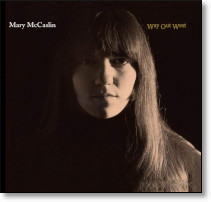 |
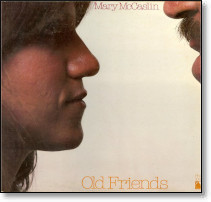 |
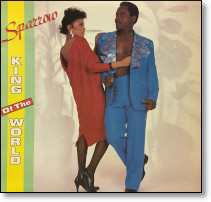 |
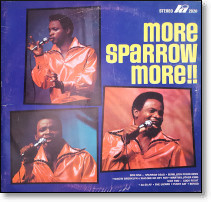 |
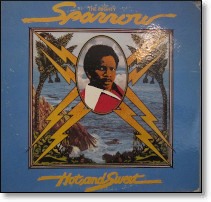 |
 |
Expanded blog post, August archive (in progress).
Tweet: Music Week: 35 albums, 8 A-list, mostly old catalog with a few recent Consumer Guide picks; plus a short note on Afghanistan that doesn't include the words "I told you so," but you know I did.
Music: Current count 36036 [36001] rated (+35), 218 [220] unrated (-2).
Looks like a decent week, but count is off from recent weeks, especially given how much of what follows is old music. Had a couple days last week where I essentially gave up and just listened to oldies. Got a bit of a lift mid-week when Robert Christgau published his August Consumer Guide -- I'm linking to the time-locked website version, where everyone can at least get a list of records reviewed (there's a link there to the And It Don't Stop newsletter, where the text is paywalled). Five records below from this month's batch. Others I had previously checked out [my grades in brackets]:
- Billie Eilish: Happier Than Ever (Darkroom/Interscope) [A-]
- Robert Finley: Sharecropper's Son (Easy Eye Sound) [B+(***)]
- The Goon Sax: Mirror II (Matador) [B+(**)]
- Anthony Joseph: The Rich Are Only Defeated When Running for Their Lives (Heavenly Sweetness) [A]
- Los Lobos: Native Sons (New West) [B+(*)]
- Mach-Hommy: Pray for Haiti (Griselda) [B+(***)]
- Billy Nomates: Emergency Telephone (Invada, EP) [B+(***)]
That leaves two albums unheard: Mach-Hommy's HBO (Haitian Body Odor), and Star Feminine Band. I replayed Mach-Hommy's Pray for Haiti, but left my grade unchanged. (Needless to say, all this was before Haiti was wracked by another earthquake, soon followed by a tropical storm.)
I cheated a bit in building a playlist for the Ace Directions in Music compilation (substituted a Miles Davis take of a Wayne Shorter song for the latter's own Super Nova version). The swap almost certainly didn't hurt the album, but not having the booklet, I'm missing the compiler's explanation for his choices, not least why he talks about the emergence of "electric jazz" instead of "fusion." Either way, it wasn't much of a "new age of jazz" -- which isn't to say that no new and interesting things were happening then, just that they are poorly represented in this compilation.
This week's "old music" continued my scan through the list of albums Christgau graded but I hadn't. My fault I went so deep into 1960s Manfred Mann -- just a personal itch I had to scratch. On the other hand, I barely touched Sparrow -- surprised to find so much on Napster. Next up: Youssou N'Dour, but most of what I missed is pretty hard to find.
Seems like I've been neglecting my new promo queue, but only 5 records there have been released (3 just this week). August is always a lax month, which is part of the reason I've been slipping.
I should probably write something on Afghanistan, but I don't see much urgency at the moment. (E.g., this relatively sane Aug. 13 article still thinks "a possible Taliban capture of Kabul itself could be a matter of months, perhaps even weeks.") I, too, didn't expect the Taliban to take over so quickly and completely. After all, the Soviet-backed regime held out three years after the withdrawal of Russian troops, and the 1990s Taliban never quite consolidated control before the US intervened. That suggests several things, of which the least well documented in the possibility that today's Taliban may be much more skillful politically than the old one was. The most striking thing about the current sweep is that most towns have been taken over without fighting, and we haven't seen anything like the massacres that occurred in the 1990s when the Taliban conquered cities like Herat. This suggests that the Taliban have much more popular support (or at least tolerance) than we have been led to believe. It also underscores how ready the mercenary army stood up by the US and NATO were to switch sides. That means that any effort by the US to re-impose order will have to start from scratch. Given that degree of failure after 20 years, that should be a sobering thought.
Needless to say, a lot of neocon idiots are piling on Biden for "losing Afghanistan." That makes for seductive rhetoric, but there's no reality to it. The venture was doomed from the start, both because we didn't care about (let alone understand) the Afghans, and because we didn't understand (let alone care about) ourselves.
New records reviewed this week:
- Emily Duff: Razor Blade Smile (2021, Mr. Mudshow Music): [r]: A-
- Rodney Jordan & Christian Fabian: Conversations (2019 [2021], Spicerack): [cd]: B+(**)
- Nas: King's Disease II (2021, Mass Appeal): [r]: B+(*)
- Pearring Sound: Socially Distanced Duos (2020 [2021], self-released): [cd]: B+(***)
Recent reissues, compilations, and vault discoveries:
- Gyedu-Blay Ambolley: Simigwa (1975 [2018], Mr. Bongo): [r]: B+(***)
- Directions in Music: 1969 to 1973: Miles Davis, His Musicians and the Birth of a New Age of Jazz (1969-73 [2021], BGP): [r]: B+(**)
- Amy Rigby: A One Way Ticket to My Life (1987-97 [2019], Southern Domestic): [bc]: B+(***)
- Joseph Spence: Encore: Unheard Recordings of Bahamian Guitar and Singing (1965 [2021], Smithsonian/Folkways): [r]: A-
Old music:
- Emily Duff: Maybe in the Morning (2017, Mod Prom): [bc]: B+(***)
- Emily Duff: Hallelujah Hello (2019, Mr. Mudshow Music): [bc]: B+(**)
- Manfred Mann: The Five Faces of Manfred Mann (1964, HMV): [r]: B+(*)
- Manfred Mann: Mann Made (1965, HMV): [r]: C+
- Manfred Mann: Mann Made Hits (1964-66 [1966], HMV): [r]: B
- Manfred Mann: The Best of Manfred Mann: The Definitive Collection (1963-66 [1992], EMI): [r]: B
- Manfred Mann: As Is (1966, Fontana): [r]: B
- Manfred Mann: Chapter Two: The Best of the Fontana Years (1966-69 [1994], Fontana/Chronicles): [r]: B-
- Manfred Mann: Hit Mann! The Essential Singles 1963-1969 (1963-69 [2008], Raven): [r]: B+(**)
- Manfred Mann's Earth Band: Glorified Magnified (1972, Polydor): [r]: B+(*)
- Manfred Mann's Earth Band: Get Your Rocks Off (1973, Polydor): [r]: B+(**)
- Manfred Mann's Earth Band: Messin' (1973 [1998], Cohesion): [r]: B+(**)
- Thomas Mapfumo & the Blacks Unlimited: Mr. Music (1985, Earthworks): [r]: B+(***)
- Mary McCaslin: Way Out West (1973, Philo): [r]: A-
- Mary McCaslin: Prairie in the Sky (1975, Philo): [r]: B+(***)
- Mary McCaslin: Old Friends (1977, Philo): [r]: A-
- Mary McCaslin: Broken Promises (1994, Philo): [r]: B+(**)
- Mary McCaslin: Better Late Than Never (2006, Mary McCaslin Music): [r]: B+(***)
- The Mekons: F.U.N. '90 (1990, A&M, EP): [r]: B+(*)
- Harold Melvin & the Blue Notes: Collector's Item: All Their Greatest Hits (1972-75 [1976], Philadelphia International): [r]: B+(***)
- Harold Melvin & the Blue Notes Featuring Teddy Pendergrass: Blue Notes & Ballads (1972-75 [1998], Epic/Legacy): [r]: B+(*)
- The Mighty Clouds of Joy: It's Time (1974, ABC Dunhill): [yt]: B+(***)
- The Mighty Clouds of Joy: The Best of the Mighty Clouds of Joy Volume 2 [20th Century Masters: The Millennium Collection] (2005-10 [2016], Motown Gospel): [r]: B
- [Mighty] Sparrow: King of the World (1984, B's): [r]: A-
- Mighty Sparrow: More Sparrow More!! (1969, Ra): [r]: A-
- Mighty Sparrow: Hot and Sweet (1974, Warner Bros.): [r]: A-
- Nas: God's Son (2002, Columbia): [r]: B+(**)
- Nas: Untitled (2008, Def Jam): [r]: A-
Unpacking: Found in the mail last week:
- Sheila Jordan: Comes Love: Lost Session 1960 (Capri) [09-27]
Friday, August 13, 2021
Speaking of Which
Tweet: Speaking of Which: I'll grant that there are many reasons to be critical of Obama, also that his 60th birthday bash made his class affinities even clearer, but doesn't excuse Matt Taibbi calling him "a common swindler and one of the great political liars of all time."
Wasn't going to write anything this week, but I got ticked off by Twitter today, and couldn't fit the depths of my outrage into a measly 280 chars.
Matt Taibbi: The Vanishing Legacy of Barack Obama: I've only read the "excerpt from today's subscriber-only post" -- not a great look for a guy who's accusing other people of selling out -- and probably wouldn't have gone that far had I not been irritated by seeing him plug the piece seven straight times in his Twitter feed, to his 542.7K followers (of which I am, with increasing regret, one). (I don't think I've ever tweeted about one of my posts more than once, not wanting to impose on my modest but growing 542 followers.) And I still probably wouldn't have mentioned it except for this line:
Obama was set up to be the greatest of American heroes, but proved to be a common swindler and one of the great political liars of all time -- he fooled us all. . . . He sold us out, and it's time to start talking about the role he played in bringing about the hopeless cynical mess that is modern America.
So, six months after Donald Trump left office, after four years of presiding over the most corrupt, mendacious, inept, and cruel administration in American history, Obama is the one remembered as "a common swindler" and "one of the great political liars of all time"? These statements defy history and logic by a mind-boggling degree. But they depend not just on overlooking most of what Trump did in the last four years, but also on blaming Obama for the rest of Trump's malign legacy.
Look, I've been pretty critical of Obama not just in retrospect but from the early days of his presidential campaign. You can read what I wrote in two large compilations of my notebook blog for the years 2009-2012 and 2013-2016 -- with bits on the campaign in the 2001-2009 volume, as well as an accounting of the Trump years 2017-2020 (these files are in Open Office format, a free word processor program, but you should also be able to import then into Microsoft Word, if that's the tool you prefer or are stuck with; they are pretty long). In assembling those files, I was a bit surprised at how critical I was of Obama (and how early), because I don't remember bearing him any ill will -- indeed, I had no qualms voting for him over Hillary Clinton in the 2008 primaries, nor did I have any doubt when he ran against the war-monger John McCain in 2008 or the vulture capitalist Mitt Romney in 2012, so I think I can claim a fair and reasoned appreciation of him.
Early on I criticized him for his lack of critical insight and vision. Later on I faulted him for not recognizing Republicans for the lethal madness they had embraced, and for not doing enough to build up a Democratic Party capable of defending against them. At all times, he remained a staunch and naive believer in American dreams and fantasies. That may have contributed to the "hopeless cynical mess that is modern America," but wasn't it Trump who made fun of Obama for ending every speech with "God bless America"? Sure, Obama's platitudes failed to solve America's problems, but America didn't have to respond with his antithesis.
In the long run, Obama's legacy comes down to two things. He will be remembered for running a relatively competent and legal administration, at least compared to Republicans fore and aft. And we'll lament the opportunity costs, eight years desperately in need of solutions that never came, and that ended in vicious recoil. If Biden seems radical today, it's because so many years of inaction and folly have made sensible policies that much more urgent now.
Still, even though Biden's agenda and tactics today are rooted in a sharp critique of Obama's agenda and tactics, no one makes a big deal out of that. Obama, Clinton, and for that matter Carter, are respected but obsolete former Democrats, carrying on with their lives while they still have them. Carter, perhaps because he grew up in a more public-minded era, or maybe just because he got rich before he got into politics, has had a very honorable post-presidential career, while the others come off looking like grifters, even though their actual tenure in office was respectably free of corruption. Even Taibbi gives them a bullshit out ("getting rich and not giving a shit anymore is the birthright of every American"; most Americans, including many of us whose roots in this country go back centuries, have nothing resembling that birthright). I'm inclined to be less generous: I hate the tendency to equate "American dream" with becoming rich and famous, and have serious doubts about the moral virtue of such a quest.
Still, why single Obama out for approbation that should apply to his entire class? If for hypocrisy, why assume that Democrats should eschew the material riches Republicans are expected to aspire to? Just because Obama's Democratic Party had a modicum of respect for workers, a whit of care for the poor, and a modest aspiration to opening up opportunities, doesn't contradict the warm support they habitually doled out to business. (It's the zero-sum Republicans who believe they're getting ahead by hurting others.) Obama may have been the last politician in America to truly believe in trickle-down: the silly notion that when you help the rich (e.g., by bailing out bankers), you're helping everyone. In one way Obama was exemplary: his failures are directly attributable to his faulty convictions.
Still, Taibbi's dumbest mistake is in using Obama to excuse Donald Trump. There's no excuse for that. Only shame.
Reminder: if you haven't already, go to HBO Max to see Betrayal at Attica. Brilliant film, featuring interviews with the indomitable Elizabeth Fink, and testimony from the resilient Frank Smith. I'm proud to have known both of them. And by the way, if you think "black lives matter" and "blue lives matter" are antithetical, you weren't in the courtyard at Attica that day, or in the courts thereafter.
Also, just found Amy Rigby's song released on Jan. 19, 2021, remembering Four Years of U. Webpage proclaims "We made it! (except for those who didn't)." Let me dedicate this to Diane Wahto, who once bravely proclaimed "we survived one George Bush; we can survive another." She did, but didn't make it through four years of Trump. Also to Kal Tillem, who didn't quite make it through the second Bush.
PS: When I went to post this, I saw a Taibbi tweet which read: "9% of Obama's 2012 voters voted for Trump, so yes, some of them were." I mention this because something in the excerpt I read made me wonder what that specific number was. I would have guessed a bit less, and put the number of Romney-to-Clinton voters even less.
Looked at Twitter next morning and my feed started off with yet another self-plug for Taibbi's column, under this: "Barack Obama's destiny was greatness, but then he became everything he promised to never be. On his vanishing legacy:". Stats: 282 retweets, 40 quote tweets, 1,468 likes. Some comments (mine after dashes):
SchoolShrink: An excellent piece. There are no words to describe how much I wish Obama had lost to Mitt Romney in 2012. I kept blaming his problems on Republican obstructionism Little did I know that he was politically right of George W. Bush. With the audacity of hope, we had blinders on. -- Short, faulty memories on Bush and Romney, who campaigned far to the right of his past or subsequent records. Not what he means, but the biggest blinder is thinking that a "leader" can overcome institutional bounds. Bush and Trump may have held heterodox views, but they stocked their administrations with hardcore, far-right conservatives. No reason to think Romney wouldn't have done the same. A big part of Obama's problem was that he recycled Clinton's neolibs even more completely than Clinton recycled Carter's. I think that was probably where Obama's head was at, but he would have had to work very hard to do otherwise. Similarly, every president has inherited a deep security state, which has made it impossible to change direction, even though Obama seemed to want to, at least back in 2008. I'll also note that Obama did better things in his second term: he gave up on trying to work with Congress, and started issuing more executive orders, and his new Secretary of State was willing to break new ground, where his old one wasn't. The down side is that anything that could be done by presidential fiat could also be undone, so Trump was able to wipe out all of Obama's second term accomplishments, but the laws Obama passed in his first term have proven more durable.
samantha: The fact Dems lost massive number of governorships, the Senate and House during his tenure shld attest to that. But no, when it comes to Obama, the hype always wins over the reality. -- Note that Obama wasn't the first Democratic president to have lost Congress after two years, and never put a serious effort into regaining Congress, even as part of his successful re-election campaign. Bill Clinton did exactly that, turning the party into his private patronage group -- which it still was to ensure Hillary Clinton's nomination in 2016. Contrast that with Harry Truman, who lost Congress in 1946, and campaigned against it in 1948.
Tabby: At last! Thank you @mtaibbi. This was evident all along but most journalists preferred to drink the koolaid. -- Really? The suggestion is that Obama was always an insipid, avaricious fraud, but journalists conspired to cover that up because they were so smitten with him. That doesn't correspond with my memory. If anything, they found him too boring, and wanted to poke him into reaction. (Except for the "Fox journalists," another species altogether, who were in a constant state of hysterical rage, yet somehow failed to discover the faults Taibbi has latched onto.)
Kris Legion: He did exactly what he was suppose to do. He did exactly what he really was.
Reeve Barker: His legacy isn't vanishing. It's becoming clearer.
Mark Lyons failed entropy warrior: Define irony: Matt Taibbi writing about writing about a vanishing legacy.
Joseph Arnold: Matt Taibbi will fight until his dying breath to complain about the good that has been done and scold because the perfect was missed.
Into the mystic: His destiny was greatness. Bwahahaha! You writing a novel, dude? -- The old adage is: the higher you climb, the harder you fall. The corollary is the more you want to tear someone down, the higher you have to pump them up first. Unfortunately, Taibbi saddled Obama with the most inflated, vacuous word in the language. Has he been paying any attention in the last four years?
Deena Stryker: If Obama disappointed, then greatness was not his destiny.....
Jamie: JFC, I think his birthday bash let a lot of us down. To a significant degree. But to call him a liar and a swindler and vacuous and question his legacy is simply way off base.
csofie: [Meme, caps reduced:] Say what you will about President Obama -- but his class and eloquence really made the deportation of 2.5 million illegal immigrants, the bombing of 7 Muslim countries, the whitewashing of torture under Bush, the continuation of the drug war, the rampant prosecution of government whistleblowers, and his expansion of government surveillance, go down smooth. -- Underscores my point that Obama went along with the institutional "norms" established by his predecessors. Nothing on this list was newly instigated by Obama, although he arguably was more diligent and effective (especially on deportations and drone warfare). Also note that nothing on this list appeared among the non-stop attacks from Fox. Maybe if liberals hadn't felt so under attack, they would have been more self-critical.
I added this one:
Tom Hull: Haven't you noticed that greatness is the most vacuous of words? Sure, it helps to prop him up so you can knock him down. But his real fault is earnestness. He always believed this American dream nonsense. Made him president, living it as ex.
Marianne shared this meme: "It's not the governments job to protect my health. It's the governments job to protect my rights. It's my job to protect my health. When you trade liberty for safety, you end up losing both." Sheesh. Moved me to comment:
Actually, protecting health is one of the most basic things government does, at least in America. The FDA keeps a lot of bad food and drugs off the market. Local health inspectors keep restaurants from making you sick. The EPA keeps companies from dumping toxic substances into the air and water. The CDC monitors diseases, and helps us avoid them or get over them. The government provides sewage treatment plants to keep us from living in filth -- probably the single biggest boost to human lifespan ever. I don't know what "rights" you think you're losing for being able to live longer and healthier lives, but without public-minded efforts of government, your would enjoy your "rights" much less.
From No More Mr Nice Blog:
I've told you over and over and over again for years that this country is divided into two groups: Republicans and Americans. On guns, on abortion, on the minimum wage, on climate change, on the Iraq War in Bush's second term, on Trump, and now on COVID, Democrats and independents have largely been in agreement. It's Republicans who are the outliers. It's Republicans who stand in the way of consensus. It's Republicans who won't let us have nice things.
Let's see if we can reduce this to a tweet:
From No More Mr Nice Blog: "This country is divided into two groups: Republicans and Americans. On [long list] Democrats and independents have largely been in agreement. It's Republicans who are the outliers." URL
Looks like 2 retweets, 15 likes, and 4 new followers after the Obama/Taibbi tweet ("I'll grant that there are many reasons . . .").
Tuesday, August 10, 2021
Daily Log
I finally kicked back against one of Marianne Cowan Pyatt's idiot right-wing posts. This listed the "18 RINO Senators voted on Saturday in favor of the Democrat Party's infrastructure bill, something Democrats never allowed to reach President Trump's desk. The RINOs gave Joe Biden a rare win at a time when the illegitimate president is sinking in the polls and continues to struggle with his diminishing faculties." I replied:
Good for them! Shows that at least some Republicans are willing to do something to make up for our nation's long neglect of infrastructure investment. Trump campaigned on the need for infrastructure spending, then never lifted a finger to deliver. Now if only some Republicans would come around on the rest of the Democrats' infrastructure plans. Thank God for Joe Biden.
Monday, August 09, 2021
Music Week
Expanded blog post, August archive (in progress).
Tweet: Music Week: 52 albums, 7 A-list (plus an even-better oldie), catching up with recent jazz (especially Norwegian), recycling the blues (& other stuff), counting down the "dog days of August," plus a note on Obama and the vanities of les nouveaux riches.
Music: Current count 36001 [35949] rated (+52), 220 [212] unrated (+8).
I've had a miserable week. I suppose that's reflected in the high rated count, inasmuch as I didn't feel up to doing anything else. (Well, I did hack out a Speaking of Which, which as far as I can tell elicited zero interest, not even a "like" on Twitter, so did it really happen?) Woke up this morning with blurry eyes. I can barely see to type this.
Note that the number of rated records inched over the 36,000 line. Actually came up one short Sunday night, but Monday morning I moved a couple albums up to get it over with.
Midweek I was having a terrible time trying to figure out what to listen to next. Chris Monsen came to the rescue, with his 50 fave new music releases a bit past 2021s midway point. About a third were records I hadn't heard, so I scrambled to catch up. My unheard list is down to 2 now: William Parker's 10-CD Migration of Silence Into and Out of the Tone World, and Anthony Braxton's 13-CD Quintet (Standards) 2020. Both are probably brilliant. Parker's 8-CD Wood Flute Songs: Anthology/Live 2006-2012 is a full A, as is Braxton's 4-CD 20 Standards (Quartet) 2003, with his previous 4-CD 23 Standards (Quartet) 2003 rated just a shade lower. Still, way too much music to try to digest streaming.
Two more albums from Monsen's list show up below in "limited sampling": a category for records that are only partially available online, not enough to grade but roughly sorted as prospects. Good chance the new Punkt. Vrt. Plastik album (a piano trio with Kaja Draksler) is as good as its predecessor. Intakt's Bandcamp only offers a cut or two, and only about half of their albums this year are on Napster -- three of those on my A-list (Aki Takase, Irène Schweizer, Silke Eberhard).
I also gave three of Monsen's "music of the spheres" picks another spin. (The fourth, James Brandon Lewis' Jesup Wagon, is already high on my A-list.) But I didn't find much reason to change my grades. I also checked out some of Eva Mendoza's earlier records, since Monsen regards her as the selling point to Parker's Mayan Space Station. My top-four (see list above) are: East Axis, Sons of Kemet, Lewis, and Barry Altschul, unless you count Anthony Joseph.
Before diving into Monsen's list, I returned to my checklist of records Robert Christgau has graded that I haven't heard. When I found Taj Mahal's Maestro available, I started digging deeper. There was some question whether I should bother with the early best-ofs, given that they've since been supplanted by more comprehensive ones. The first was a Christgau A-, and the second evinced some evolution in thinking about his canon, but in both I wound up referring to the 2000 The Best of Taj Mahal. In the end, I decided to substitute its cover scan for the other two. Manhattans came next, then (if/when I continue) Manfred Mann.
Couple quasi-political notes (maybe including them here will spare us another Speaking of Which):
My wife was pretty upset by Barack Obama's 60th birthday bash. As I noted in a comment to her Facebook rant, Obama now ranks 12th on Wikipedia's List of presidents of the United States by net worth, behind Bill Clinton (9th) and just ahead of GW Bush (13th). Those are certainly the top three in terms of cashing in on their "public service," more a sign of the times than of their personal greed. Bush started well ahead of the other two, but his business career was almost as inept as his presidency, with most of his wealth coming from his share as front man for the Texas Rangers, which was actually owned by much richer Texans. Clinton and Obama started out poor, but worked their way through elite colleges through a combination of obsequieousness and talent. As politicians they excelled at raising money, and in office they excelled at delivering wealth and power to their patrons. It's natural that they should aspire to belong to the class they had served so diligently. Still, Obama's extravagant party looks like one of those classic nouveau riche foibles, a case of excessive display to show the world he's arrived. Also to show that anyone who still thinks he's a community organizer (let alone a Mau-Mau) is dead wrong. But even if he is the living embodiment of "the American dream," he is a mere exception, not disproving the rule but reminding us how difficult it is for anyone less willing to prostrate themselves to the people who run the country, the ones a previous Democratic president dubbed "the malefactors of great wealth." (Note that FDR is down to number 10 on the Wikipedia list, just below Clinton.)
I should probably write something about Michele L Norris: Germany faced its horrible past. Can we do the same? I suspect the answer is no, and I'm not sure it's worth the trouble. I haven't read anything on Germany's de-Nazification process comparable to John Dower's book on postwar Japan, Embracing Defeat, but my impression is that the Germans simply didn't want to speak of their Nazi past, until the 1960s when you started seeing a bit of introspection (e.g., in the plays of Rolf Hochhuth and Peter Weiss). And really, it doesn't matter if you simply forget the past, and move on, trying to live better in the present. Israel's obsession with never forgetting the Holocaust hasn't done it, or anyone else, much good. Indeed, the persistence of the past has kept Israelis (and their morror-image Palestinians) locked in perpetual struggle over past wrongs, continuously added to). What we do need to do is stop lying about the past, and stop looking for a romanticized version of the past that justifies present inequality.
Approaching the end of Steve Benen's The Impostors: How Repubicans Quit Governing and Seized American Politics. Next chapter is called "It's Like These Guys Take Pride in Being Ignorant." Indeed. Good book. Of course, he can't resist using Trump for examples, but all of his "post-policy" complaints are shown to have deeper roots and broader support in the Republican party. I still don't think "post-policy" has the right tone to it. Closer to the mark would be "nihilist."
New records reviewed this week:
- Joshua Abrams/Chad Taylor: Mind Maintenance (2021, Drag City): [r]: B+(***)
- Altin Gün: Yol (2021, ATO): [r]: B+(**)
- Miguel Ângelo Quarteto: Dança Dos Desastrados (2021, self-released): [bc]: B+(**)
- Bleachers: Take the Sadness Out of Saturday Night (2021, RCA): [r]: B+(*)
- Dr. Mike Bogle: Let There Be Light (2021, MBP/Groove): [cd]: B
- Wayne Coniglio & Scott Whitfield: Faster Friends (2021, Summit): [cd]: B
- Jack Cooper/Jeff Tobias: Tributaries (2021, Astral Spirits): [dl]: B
- Dominican Jazz Project: Desde Lejos (2020-21 [2021], Summit): [cd]: B+(*)
- Falkner Evans: Invisible Words (2021, CAP): [cd]: B+(**) [08-13]
- Orrin Evans: The Magic of Now (2021, Smoke Sessions): [r]: B+(***)
- Fire!: Defeat (2019-20 [2021], Rune Grammofon): [r]: A-
- Michael Foster/Ben Bennett: Contractions (2019 [2021], Astral Spirits): [r]: B+(***)
- Frode Gjerstad Trio + 1: Forgotten City (2018 [2020], PNL): [bc]: B+(*)
- Devin Gray/Ralph Alessi/Angelica Sanchez: Melt All the Guns (2019 [2021], Rataplan, EP): [r]: B+(**)
- Koma Saxo: Live (2019 [2021], We Jazz): [r]: B+(***)
- Marthe Lea Band: Asura (2020 [2021], Motvind): [r]: B+(*)
- Lean Left: Medemer (2018 [2020], PNL): [bc]: A-
- Michael Mantler: Coda: Orchestra Suites (2019-20 [2021], ECM): [r]: B+(**)
- Sibusiso Mash Mashiloane: Ihubo Labomdabu (2021, Unlocked Keys): [r]: B+(*)
- Calle Neumann/Ketil Gutvik/Ingebrigt Håker Flaten/Paal Nilssen-Love: New Dance (2020 [2021], PNL): [bc]: B+(***)
- Caroline Parke: Pause and Pine (2021, self-released): [r]: B+(*)
- Part Chimp: Drool (2021, Wrong Speed): [r]: B
- Riders Against the Storm: Flowers for the Living (2021, Divide and Conjure): [bc]: B+(***)
- Aksel Rønning Trio: ART (2019 [2021], Øra Fonogram): [r]: B+(***)
- Claire Rousay: A Softer Focus (2021, American Dreams): [r]: B
- Tine Surel Lange: Works for Listening 1-10 (2021, Sofa Music): [bc]: B+(**)
- Arne Torvik Trio: Northwestern Songs (2019 [2021], Losen): [r]: B+(**)
- Young Pilgrims: We're Young Pilgrims (2021, Stoney Lane): [bc]: B-
Recent reissues, compilations, and vault discoveries:
- Roy Brooks: Understanding (1970 [2021], Reel-to-Real, 2CD): [r]: B+(***)
- Carl Magnus Neumann/Christian Reim Quartet: Molde International Jazz Festival 1976 (1976 [2021], Jazzaggression): [r]: B+(***)
- Christian Reim Sextet: Mona Lisa (1973 [2021], Jazzaggression): [r]: A-
- The Rough Guide to the Roots of Jazz (1918-30 [2021], World Music Network): [r]: B+(***)
Old music:
- Billy Bang: Outline No. 12 (1982 [1983], Celluloid): [bc]: B+(**)
- Brown Sugar: I'm in Loe With a Dreadlocks: Brown Sugar and the Birth of Lovers Rock 1977-80 (1977-80 [2018], Soul Jazz): [r]: B
- Taj Mahal: The Taj Mahal Anthology: Volume 1 (1968-71 [1977], Columbia): [r]: A
- Taj Mahal: Recycling the Blues & Other Related Stuff (1972, Columbia): [r]: B+(*)
- Taj Mahal: Oooh So Good 'N Blues (1973, Columbia): [r]: A-
- Taj Mahal: The Hidden Treasures of Taj Mahal 1969-1973 (1969-73 [2012], Columbia/Legacy, 2CD): [r]: B+(***)
- Taj Mahal: The Best of Taj Mahal (1968-74 [1981], Columbia): [r]: A-
- Taj Mahal: An Evening of Acoustic Music (1993 [1994], Tradition & Moderne): [r]: B+(***)
- Taj Mahal: Best of the Private Years (1993-97 [2000], Private Music): [r]: B+(*)
- Taj Mahal & the Phantom Blues Band: Shoutin' in Key: Live (1998 [2000], Hannibal): [r]: B+(*)
- Taj Mahal: Maestro (2008, Heads Up): [r]: A-
- Manhattans: Greatest Hits (1973-80 [1980], Columbia): [r]: B+(**)
- Manhattans: Kiss and Say Goodbye: The Best of the Manhattans (1973-85 [1995], Columbia/Legacy): [r]: B+(***)
- Ava Mendoza: Shadow Stories (2010, Resipiscent): [bc]: B+(*)
- Ava Mendoza/Dominique Leone/Nick Tamburro: Unnatural Ways (2015, New Atlantis): [r]: B+(*)
- Ava Mendoza's Unnatural Ways: The Paranoia Party (2019, Sleeping Giant Glossolalia): [bc]: B-
- Ava Mendoza/Vijay Anderson/Stephen Gauci: Studio Sessions Vol. 4 (2019, Gaucimusic, EP): [bc]: B+(**)
- Pulnoc: Pulnoc (1990 [1991], Globus International): [dl]: A
- Riders Against the Storm: Riders Against the Storm (2013, self-released, EP): [bc]: B+(*)
- Riders Against the Storm: Speak the Truth (2010, self-released): [bc]: B+(**)
- Virunga: Feet on Fire (1991, Stern's Africa): [r]: B+(***)
Further Sampling:
Records I played parts of, but not enough to grade: -- means no interest, - not bad but not a prospect, + some chance, ++ likely prospect.
- Mark Feldman: Sounding Point (2020 [2021], Intakt): [bc: 2/8]: +
- Fred Frith/Ikue Mori: A Mountain Doesn't Know It's Tall (2015 [2021], Intakt) [bc: 2/13]: +
- Alexander Hawkins: Togetherness Music: For Sixteen Musicians (2020 [2021], Intakt): [bc: 2/6]: +
- Christopher Hoffman: Asp Nimbus (2020 [2021], Out of Your Head): [bc: 3/8]: +
- Punkt. Vrt. Plastik [Kaja Draksler/Petter Eldh/Christian Lillinger]: Somit (2020 [2021], Intakt): [bc: 2/13]: ++
Unpacking: Found in the mail last week:
- Eivind Aarset 4tet: Phantasmagoria, or a Different Kind of Journey (Jazzland) [09-24]
- Satoko Fujii: Piano Music (Libra) [09-17]
- Kazemade George: I Insist (Greenleaf Music) [10-22]
- Jared Hall: Seen on the Scene (Origin) [08-20]
- Rodney Jordan & Christian Fabian: Conversations (Spicerack)
- L.A. Cowboy: The Big Pitch (Reconcile) [08-15]
- Lady Millea: I Don't Mind Missing You (Reconcile) [08-15]
- Steve Million: What I Meant to Say (Origin) [08-20]
- David Sanford Big Band Featuring Hugh Ragin: A Prayer for Lester Bowie (Greenleaf Music) [09-24]
- Jim Snidero: Strings (2001, Savant) [09-10]
Friday, August 06, 2021
Speaking of Which
Tweet: Speaking of Which: Steve Benen's "The Impostors"; how Trump could have replaced Obamacare with something beautiful; why liberals should be hysterical; and other notes on books, Hungary, rigging votes, the pandemic, and clueless media.
I've been reading Steve Benen's The Impostors: How Republicans Quit Governing and Seized American Politics, because it seemed likely to establish one of my own themes of late: that Trump is a mere reflection of the longer term moral and intellectual rot of the Republican Party. Of course, he couldn't resist illustrating this theme with Trump examples -- no one else has ever merged so succinctly thoughts that are fact-free, reason-free, careless, and mean-spirited. But Trump became the leader of the Republicans not because he paved the way, but he followed their Geist so flamboyantly. (Sorry for the German, but the usual translation of "spirit" doesn't quite do the concept justice; also it loses the sense of personification, the common root of "ghost," although in this case "zombie" would be more to the point. English speakers more often see the derivative Zeitgeist, the "spirit of the times," although the Republican Geist doesn't belong to the times so much as it attempts to defeat them.)
The thing that Benen doesn't make clear enough is that while the Republicans have been evil for quite some time -- from Goldwater they learned that extremism in defense of the rich is no vice; from Nixon they learned that winning justifies all manner of lying, stealing, and cheating; from Reagan they learned to live in a dream world of their own vanities; from the Bushes they learned that war is the ultimate form of self-glorification -- they didn't become shameless about it until the loss to Obama blew their minds. That was when Fox metamorphosed from being dutiful apologists for Republican politics and became raging agitators, spewing whatever rhetoric they could use to leverage their followers emotions, with no consideration for where that rhetoric might lead. They orchestrated an insurrection, and branded and sold it as the Tea Party. Having plunged the nation into an endless, hopeless series of wars, and having wrecked the economy on a bubble of deceit and fraud, they were voted out, and miraculously freed of responsibility for the disasters they had created.
Benen's formulation isn't quite right. Repubicans didn't "quit governing." They were fired, but since they weren't held accountable for the many things they had done wrong, the lesson that they learned was that they could get away with anything -- all it would take is the sort of confident bluster Trump excelled in. Yet to say they "seized American politics" gives them too much credit for deliberate plotting. They crippled political discourse, reducing it to their level of trash talk and gutter sniping. Their relentless attack media, combined with the deference showed by the mainstream media, gave them a huge advantage. They were also helped by Democrats playing into their hands.
Benen's favorite term for today's Republicans is "post-policy." Like "post-truth," it takes a glaring failure and refashions it as a clever novelty. But there's nothing new here: all "post-" means is we take no responsibility for failures, be they bad policies or mistruths. For Republicans, the key to unaccountability is their core belief: that government is incapable of doing things that help most citizens. You can trace that back to Reagan's joke ("The most terrifying words in the English language are: I'm from the government and I'm here to help"), although the idea is older -- cf. Friedrich Hayek and Ayn Rand, among other cult favorites. Once you buy into that joke, the only reason you need for electing Republicans is to deny Democrats the opportunity to prove you wrong. On the other hand, when Republicans botch governance, they're simply proving themselves right. Trump did that so completely he ranks in their minds as "the greatest president of all time."
This is my second draft note on Benen's book. I started a few days ago just wanting to comment on one little quote:
In the days leading up to [Trump's] inauguration, the president-elect boasted, "We're going to have insurance for everybody. "He added that Americans "can expect to have great health care. . . . Much less expensive and much better."
The president-elect even went so far as to establish specific benchmarks: universal coverage, "much lower deductibles," and a simpler and less expensive system in which all Americans are "beautifully covered."
Trump's oft-promised replacement plan never materialized, which suggests either that he was never serious about coming up with one, or that he belatedly discovered "health care is hard" (didn't look it up, but I think that's an actual quote from him, followed by "who knew?"). Unlikely the latter, as there's no evidence that he could discern good from bad policies, unless one was labeled by party: Democratic policies are guaranteed to be "bad," because even if they work as defined, that would make Democrats look good, and that would be bad. On the other hand, Republican policies are always good, because they supplant bad Democratic policies, and even if they fail no one will blame Republicans, because, you know, government never works anyway.
But what I wanted to point out was that Trump could have offered a health care plan to replace ACA that would have met his pie-in-the-sky policy goals: a single-payer "Medicare-for-All" scheme. Sure, a lot of well-heeled business forces would have been upset, but if Republicans rallied to his plan, it could have been passed (even attracting some Democrat votes). Admittedly, it wouldn't exactly be the plan Bernie Sanders has been campaigning for. Once Republicans accepted the key concept of universal coverage, and the necessity of limiting some of the greediest, most predatory companies anywhere, they could still do much to tailor the program to their prejudices. Bill Clinton described the "end of welfare as we know it" deal he made with Newt Gingrich as "a good welfare bill wrapped in a sack of shit." One thing Republicans can still be trusted to deliver is a sack of shit.
A Republican version of single-payer would keep open a role for private insurance companies, but they would be selling supplemental policies, like they currently do for people who have Medicare. The universal health care policy would just cover the basics, including vaccinations, regular check ups, emergency room visits, a standard menu of surgeries, and the risk of catastrophic care -- just enough to keep the system viable, and save patients from bankruptcy. These services could be riddled with co-payments and deductibles, for which you could either have to buy supplemental insurance, or find providers willing to waive fees. In other words, the system would be stratified by class, with the well-to-do having lots of options, others less so. Private insurance would be cheaper, because the insurance companies are protected against serious risks, and could offer lots of choices. Also, political control of the system could be delegated to the states (or multi-state compacts), which would avoid the "federal takeover" charge.
There are lots of ways the system could be made more efficient. One big one would be to phase out patent monopolies, which would make the supply chain and pharmaceuticals much more competitive. One that appeals especially to Republicans would be to end (or at least cap) malpractice awards. (Supposedly this risk drives a lot of "defensive medicine" waste, but it's certainly true that malpractice insurance takes a but chunk of doctor income, and hospitals and drug companies have huge exposure.) The big question will be how to rearrange current health care spending to support such a system, but with modest cost savings it could be done without raising more net taxes -- a key requirement for Republicans.
Of course, Republicans won't propose anything like this. The greed of the health care system hurts all other businesses, but Republicans are committed to defending every existing profit-seeking scheme, no matter how dubious or dangerous. They believe in self-responsibility, which means everyone should take what they can, with the winners free to enjoy their spoils. They don't care that health care is a classic market failure, even given its cancerous growth, as it's expanded from negligible to over 20% of GDP. And, as noted above, they believe that government intervention would only cause more harm, even though no other alternative is up to the task. But also, Republicans don't care whether working people have health care, so they have no motivation to do anything to help people.
Every now and then, someone tries to point out that we'd be in even worse shape if Republicans had elected someone competent, instead of an incompetent moron like Trump. That underestimates the real damage that was done by four years of Republican rule, mostly by the minions given free range to implement their neuroses and fantasies. But it also shows a fundamental misunderstanding of Trump's role in all of this. He was the front man, the media magnet. When people paid him so much the attention, they overlooked everyone around him. He had built-in deniability: after all, he was a moron. No one even tried to reason with him. He attracted an intense and impervious personal cult. When he won in 2016, I figured Republican regular would flock to him, if for no reason other than that he was their winner, and winning was the only thing that Republicans really cared about. And that's exactly what happened, but even now, as a loser-in-denial, he remains a powerful symbol for his party. He remains their leader, because he is them, and vice versa. They're all morons. They're all assholes. And they're proud of it. They think anyone who isn't with them isn't a real American, and they hate your guts.
If you could reason with them, they'd be able to see the advantages of backing a "radical" proposal like single-payer. But you can't, and they won't figure it out on their own. That's what makes this a good example of how limited they are.
A few recent articles I noticed:
Jonathan Chait: Tucker Carlson Has Seen the Future, and It Is Fascist: "Orban's Hungary is the road map for American authoritarianism." Only the headline writer uses the F-word here, but that's a bit of a trend regarding Viktor Orban's Hungary -- Chait prefers "authoritarian" but also offers "kleptocracy." It's probably easier to call fascist the leader of a country with a history of fascism, but there isn't much political daylight between Orban and Trump (or Carlson). But the disturbing thing about Orban as a model isn't his reactionary view but the way he's rejiggered Hungary's political system to ensure his party will rule even when the voters turn against him. His innovations read like a road map for the Republican Party, which studies and envies him. For more, see Zack Beauchamp: Why it matters that Tucker Carlson is broadcasting from Hungary this week.
Thomas Frank: US liberals' hysteria outlives Trump. We should be so lucky, and not just because Frank's tombstone for Trump seems premature. While it may be peculiar that it took a clod as outrageous as Trump to finally "induce such fear and loathing among the nation's highly educated elite" when a long string of precursors should have tripped warning signs, I say better late than never. The lack of "hysteria" in response to Reagan and the Bushes was no shortage of provocation, but it's not just frogs and lobsters who realize too late that they're being cooked. (One can't quite say the same about Nixon. While some of his crimes took a while to be uncovered, and some have never been given the scrutiny they deserved, the media did a better job of paying attention at the time, probably because so many people were marching in the streets in protest -- a big part, uncredited by Frank, of the "downpour of denunciation" that has dogged Trump.) I just found this piece, and don't have time to give it the fine-toothed reading it deserves, but I will offer a couple notes. No doubt there have always been liberal intellectual snobs -- Thomas Jefferson qualifies, and he owned slaves; while his pen pal John Adams didn't, you'd be pressed to find a contemporary with a lower opinion of the unwashed masses -- the line Frank draws between the elite opponents of William Jennings Bryan, Franklin Roosevelt, and Trump blurs what really matters: Trump is feared and loathed not because he's a populist (which, as Frank knows as well as anyone, he isn't even remotely), but because he represents a monstrous threat, not to their elitism but to the very foundation of principles they hold dear: liberal democracy, and the belief that America's exceptional wealth and success is based on principles of freedom, fairness, and justice for all. Frank's heroes have always been populists, so he's extra-sensitive to intimations of snobbery from elites he's never trusted. And so he has little trouble finding dubious examples of "hysteria" that have thrown up at Trump, such as the Russia "scandals," the "attack on norms," the lectures on the "authoritarian" threats to democracy itself. I've been critical on that front as well, not out of any desire to give Trump a fair break, but because I doubt the efficacy of those charges. In particular, I don't think the two impeachments did any good, and I don't see the January 6 investigation as leading to anything worthwhile. On the other hand, I don't know how to convey to people just how disastrous the 40-year Reagan-Bush-Trump era has been. So I'm inclined to cut people who are basically on my side a little slack. They don't have to reason correctly, as long as they get to the right answer. [PS: h/t to Matt Taibbi for the link, even though he did it for the wrong reasons, to make the wrong point.]
Gregg Herkin: Five myths about the atomic bomb: Well, let's list them:
- The bomb ended the war.
- The bomb saved half a million lives.
- The only alternative to the bomb was an invasion of Japan.
- The Japanese were warned before the bomb was dropped.
- The bomb was timed to gain a diplomatic advantage over Russia and proved a "master card" in early Cold War politics.
The first four are adequately explained in the text. Most importantly, Herken emphasizes the fear in Japan of the Soviet Union's entry into the war. Japanese leadership had realized that they had lost the war well before August, 1945, and had actually approached Russia over possible surrender terms, which was one reason Stalin advanced the schedule for entering the war. (Another reason may have been the impending use of nuclear weapons, which Stalin was vaguely informed of by Truman in Potsdam, and knew more of through espionage.) The fifth point comes from Gar Alperovitz's 1965 book Atomic Diplomacy. I read the book shortly after it came out, and thought it had merit, but I've had doubts since. There certainly were factions within the American military and foreign policy apparatus that saw Russia and Communism as postwar rivals, and did what they could to pivot to confrontation, but they didn't become dominant until 1947-48, with the Berlin airlift, and more so in 1950, with the "fall" of China and the opening of the Korean War. I'd go so far as to count Leslie Groves, the general in charge of the Manhattan Project, as one of those factions. And there was a broader consensus that the US should become the dominant world power after the war, which would inevitably (not necessarily consciously) lead to conflict with the Soviet Union. George Kennan, who became the architect of the "containment policy," was one of them. On the other hand, Truman had not bought into any kind of containment policy, at least by Potsdam, where he lobbied Stalin to enter the war against Japan. For one thing, I doubt Truman (or anyone, except maybe Groves) had any real understanding about the power of nuclear weapons. Truman didn't even know about the Manhattan Project until FDR died and he became president. A lot of factors converged to create the Cold War, and no one was smart enough to figure them out ahead of time (not even Kennan, who thought he was). Meanwhile, for all its moral conceit, it was the United States (alone) who committed the atrocities of Hiroshima and Nagasaki. That should humble us. But it hasn't.
Michael Kazin: The Revolution That Wasn't: "Do we give the activist groups of the 1960s more credit than they deserve?" Well, yes and no, it all depends. As I've said many times, the fundamental arguments advanced by the New Left won broad acceptance and came to permeate American culture, but they didn't get organized into effective political power, which allowed the right to make gains, especially in the 1980s. There are lots of reasons for this. Arguably, we were too critical of establishment liberals, and too naive about the growing conservative movement. We were too indifferent to unions, and they -- especially after the Cold War purge of communist-sympathizers -- had become too reactionary. Or maybe it was just the corruptibility of a political system where both parties work full time to court donors. This is a review of a new book by David Talbot and Margaret Talbot: By the Light of Burning Dreams: The Triumphs and Tragedies of the Second American Revolution, which naturally focuses overmuch on marginal groups that were attracted by the idea of countering violence with violence. Such groups burned out fast, with little to show for their wasted lives.
Ian Millhiser: Georgia Republicans didn't waste any time in using their new voter suppression law. This lays out the mechanics of how the law could work. The first step is to challenge the election board in Atlanta, in hopes of replacing it with a state-appointed supervisor (i.e., a Republican), who could disqualify challenged voters (e.g., Democrats). Georgia is close enough that it wouldn't take a lot of cheating to tip the state back to the Republicans. If there is any saving grace in this, it's that this particular method will be hard to hide, and will raise a storm of protest. I generally think that voter suppression attempts are likely to backfire, as they motivate the targets to work that much harder to vote. Still, the Republicans are waging a full court press all across the country to steal elections. For more on who's behind all this, see Jane Mayer: The Big Money Behind the Big Lie: "Donald Trump's attacks on democracy are being promoted by rich and powerful conservative groups that are determined to win at all costs." Also: Richard L Hasen: Trump Is Planning a Much More Respectable Coup Next Time.
Kim Phillips-Fein: The Liberals Who Weakened Trust in Government: "How public interest groups inadvertently aided the right's ascendency." Review of Paul Sabin: Public Citizens: The Attack on Big Government and the Remaking of American Liberalism. Focuses on "public interest groups" in the 1970s (especially consumers and environmentalists), who often found liberal governments in league with corporations, undermining popular faith in government as an agent for the people. How much this ultimately helped conservatives as they rose to political power in 1980 is hard to say. A major problem for Democrats was that as unions started to lose power, they gave up on trying to represent the broad working class and came to be viewed as just another special interest, leaving them to compete with other public and private interest groups. What is true is that Democrats undercut themselves with a series of fiascos (like Vietnam), and wound up turning to business to make up for waning union support. The result was long-term loss of credibility, not that they didn't try to blame that, too, on Ralph Nader.
Aaron Rupar: Why Newsmax is failing: Interview with Jason Campbell. Viewership of the "Trumpier-than-Fox" channel is down more than 50 percent from January (average 300,000 to 114,000).
Alex Shephard: The Media Is Too Clueless and Sensationalistic to Properly Explain Breakthrough Covid: Or, well, really, anything else. Maybe they're right that most people don't want to understand, but it's not like they give them a chance. The same basic complaint is aired in Kate Aronoff: Why Mainstream Media Struggles to Explain the Infrastructure Plan's Climate Spending.
David Wallace-Wells: 'We Could Have Prevented This': "The scientist Eric Topol on the Delta variant and its dangerous impact." According to the New York Times, new cases peaked on Jan. 8 at 259,616 (all figures 7-day averages), then declined more or less steadily to 10,608 on July 5), before increasing again to 96,036 on Aug. 4 (+131% 14-day change). There has, however, been a considerable drop in mortality (although deaths are up 65% over the last 14-days, still below any point after the initial spike in 2020). Key line here: "the age skew of the disease and the age skew of vaccine penetration, taken together, mean that the country as a whole has probably had at least 90 percent of its collective mortality risk eliminated through vaccines." Lots more info here. [Oh, by the way, in headlines that need no further comment: Matt Stieb: GOP Representative Suing Nancy Pelosi Over House Mask Mandate Gets COVID.]
Daily Log
Chris Monsen 50 fave new music releases a bit past 2021s midway point, which I should use as a checklist.
Music from the spheres:
- María Grand: Reciprocity (Biophilia Records) [***]
- James Brandon Lewis Red Lily Quintet: Jesup Wagon (TAO Forms) [A-]
- William Parker: Mayan Space Station (AUM Fidelity) [***]
- Luís Vicente Trio, Gonçalo Almeida, Pedro Melo Alves: Chanting In the Name Of (Clean Feed) [**]
Heavy rotation:
- Alder Ego: III (We Jazz Records) [**]
- Christian Reim Sextet: Mona Lisa Suite Live at Molde, 1973 (Jazzaggression) [A-]
- William Parker: Painters Winter (AUM Fidelity) [A-]
- Kari Ikonen: Impressions, Improvisations and Compositions (Ozella) [***]
- Madlib: Sound Ancestors (Madlib Invazion) [*]
- Dry Cleaning: New Long Leg (4AD) [A-]
- Punkt. Vrt. Plastik. (Kaja Draksler, Peter Eldh, Christian Lillinger): Somit (Intakt) [++]
- Mario Pavone / Dialect Trio + 1: Blue Vertical (Out Of Your Head Records) [***]
- Silke Eberhard Trio: Being the Up and Down (Intakt) [A-]
- Three Layer Cake (Brandon Seabrook, Mike Watt, Mike Pride): Stove Top (Rare Noise Records) [***]
- Sibusiso Mash Mashiloane: Ihubo Labomdabu (self-released) [*]
- Mach-Hommy: Pray For Haiti (Griselda Records) [***]
- Miguel Zenon: Law Years: The Music of Ornette Coleman (Miel) [A-]
- Carl Magnus Neumann, Ketil Gutvik, Ingebrigt Håker Flaten, Paal Nilssen-Love: New Dance (PNL) [***]
- Fire!: Defeat (Rune Grammofon) [A-]
- Ivo Perelman Trio: Garden of Jewels (Tao Forms) [A-]
- Marthe Lea Band: Aura (Motvind) [*]
- Claire Rousay: a softer focus (American Dream Records) [B]
Thoroughly enjoying
- Aki Takase/Christian Weber/Michael Griener: Auge (Intakt) [A-]
- William Parker: Migration Of Silence Into and Out Of the Tone World (Centering Records) []
- Tom Rainey Obligato: Untucked In Hannover (Intakt) [**]
- Anthony Braxton: Quartet (Standards) 2020 (New Braxton House) []
- Signe Emmeluth: Hi Hello I'm Signe (Relative Pitch) [B]
- Koma Saxo: Live (We Jazz Records) [***]
- Christopher Hoffman: Asp Nimbus (Out Of Your Head Records) [+]
- Body Meπa: The Work Is Slow (Hausu Mountain) [A-]
- Part Chimp: Drool (Wrong Speed Records) [B]
- Rodrigo Amado This Is Our Language Quartet: Let the Free Be Men (Trost) [A-]
- Skarbø Skulekorps: Dugnad (Hubro) [**]
- Flow Trio with Joe McPhee: Winter Garden (ESP) [A-]
- Tine Surel Lange: Works For listening 1-10 (Sofa Music) [**]
- Jazmine Sullivan: Heaux Tales (RCA) [*]
- Mario Pavone Tampa Quartet: Isabella (Clean Feed Records) [***]
- Aksel Rønning Trio: ART (Øra Fonogram) [***]
- Frode Haltli: Avant Folk II (Hubro) [**]
- Butcher/Weston/Storesund/Knedal Andersen: Mapless Quiet (Motvind) [**]
- Hedvig Mollestad Trio: Ding Dong. You're Dead (Rune Grammofon) [***]
- Gary Bartz, Ali Shaheed Muhammad, Adrian Younge: Jazz Is Dead 6 (Jazz Is Dead) [***]
- Paul Dunmall / Percy Pursglove / Olie Brice / Jeff Williams: Palindronmes (West Hill Records) [***]
- Iréne Schweizer & Hamid Drake: Celebration (Intakt) [A-]
- Mdou Moctar: Afrique Victime (Matador) [A-]
- Devin Gray, Ralph Alessi & Angelica Sanchez: Melt All the Guns (Rataplan) [**]
- Arne Torvik Trio: Northwestern Songs (Losen) [**]
- Barry Altschul 3Dom Factor: Long Tall Sunshine [A-]
- Sons Of Kemet: Black To the Future (Impulse!) [A]
- Mind Maintenance: Mind Maintenance (Drag City) [***]
A couple of Facebook comments, the first based on a "Fear Strikes" laundry list, starting with "2000 - Y2K is going to destroy everything! 2001 - Anthrax is going to kill us all! 2002 - West Nile Virus is going to kill us all!" and ending with "2020 - Corona Virus is going to kill us all!" and "The truth is FEAR is going to kill you . . . Turn off the TV. And wash your hands!"
But note that one line stands out from all the rest, by several orders of magnitude. You know, the one that has killed 614,000 Americans, out of 35,000,000 cases. Case rate is as high now as it was in early November. Death rate is less than it was before vaccinations became available, because we've gotten better at testing and treating, so the panic of the unknown in early 2020 has faded. So, sure, it's not going to "kill us all!" But deaths are up 65% over the last 14 days, and long-term effects aren't even being counted. Sometimes fear is reasonable, especially when it leads to taking sensible precautions. For some numbers and map: link
Pamela Summers-Smith responded:
Remember in the 70s we were warned about the coming Ice Age? (We are actually still coming out of our last Ice Age.) And, the ozone madness? (Hole is almost gone now.) How about SARS, MERSA, and other "pandemics"? Fear controls.
I replied:
The Pleistocene ice age is now known to have waxed and waned, with five major expansions, which made the retreat of the last 12,000 years seem temporary. Especially with the correlation of expansions to certain variations in the Earth's orbit and inclination. When I first started reading about "global warming" I figured the two factors might cancel each other out. The important factor right now is that greenhouse gases are raising global temperatures much faster than astronomical factors are working on seasons. By the way, the "ozone hole" wasn't madness, although the consequences involved a fair amount of speculation. But governments recognized that the problem was man-made, and moved to reduce the amount of CFCs released into the atmosphere, averting the problem. Same thing could have been done with greenhouse gases, but we didn't have the political will to bring about the necessary changes. As for the pandemics, just because you dodge one bullet, doesn't mean you're safe when they keep shooting. Another name for Covid-19 is SARS-2. None of which is to deny that fear isn't often manipulated for ulterior motives. When Truman wanted to start the Cold War, Arthur Vandenberg told him that the only way he could sell it was to "scare the hell out of people." He did, and we spent the next 45 years on the brink of nuclear war. There are both real and spurious things to be afraid of in that one story. The War on Terror was born in hubris, but was sold with fear. Still, there are real things we should fear. It's just hard for people to tell, especially when they can't trust organizations that should know better.
Wednesday, August 04, 2021
Sympathy for the Devil
Title is a disclaimer, a way of easing my mind into writing something programmatic I don't actually advocate. But I find it possible, maybe even useful, to hypothesize from alternative viewpoints. One shouldn't confuse that ability with empathy, or even respect -- not that I underestimate the value of either. It just means one can take a different starting point and reason from it. Needless to add, that doesn't necessarily help you better understand people who seem incapable of reasoning. So, yes, the Devil of the title is Donald Trump and his Republican brethren. And the point of sympathy is to allow one to get close enough to turn away all that more emphatically.
The occasion for this is reading Steve Benen's The Impostors: How Republicans Quit Governing and Seized American Politics, specifically the chapter on Republican efforts to oppose, repeal, replace, and/or wreck so-called Obamacare. In particular, what set me off was this passage:
In the days leading up to [Trump's] inauguration, the president-elect boasted, "We're going to have insurance for everybody. "He added that Americans "can expect to have great health care. . . . Much less expensive and much better."
The president-elect even went so far as to establish specific benchmarks: universal coverage, "much lower deductibles," and a simpler and less expensive system in which all Americans are "beautifully covered."
Of course, my first thought was that more and better coverage for cheaper was pie in the sky, so it's not surprising that Republicans never came up with a proposal that even vaguely approached fulfilling Trump's dream. But as I started thinking this through, I realized that the Republicans' problem wasn't starry-eyed ideals but a basic lack of interest in solving the problem. After all, there is a very obvious solution, one that has been adopted by virtually every other country around the world: universal, single-payer health insurance. Indeed, it was partially adopted by the United States in 1965, with the passage of Medicare, a resounding success which took the most poorly served segment of the population (those over 65) and turned them into the best-served.
We'll return to why Republicans couldn't conceive of this solution, but let's start by noting that they had big political advantages if they wanted to sell a universal coverage scheme. Obama had gone with a private insurance scheme that failed either to guarantee universal coverage or to contain out-of-pocket costs, leaving most Americans disappointed, and Democrats open to attack, from the left as well as from the right. Moreover, Republicans controlled a propaganda machine: one that was very effective at attacking Democrats, but would look favorably on their own proposals. A Republican single-payer plan would be a game-changer.
Also note that it could be structured to reflect and reinforce Republican prejudices. In particular, it would offer two-classes of service. Everyone would start with a government-funded universal basic insurance, which would cover public health and a range of basic and catastrophic services through a network of low-cost providers -- you could think of this as "Medicaid-for-all," with co-payments out of network or beyond the menu of approved services. Above this basic level, individuals (and possibly companies) could contract for supplemental insurance, like that commonly sold to Medicare recipients. Supplemental insurers could manage their own provider networks, and providers would have the option of only dealing with supplemental insurers (much like many doctors refuse to serve Medicaid patients today).
This preserves a role for private insurers, while significantly reducing their risk (and, assuming competition, premiums; as with ACA, the government could also insure the insurers against adverse selection, further reducing risk). Those who want (and can afford) customer choice will be able to tailor the system to their needs, without turning every possible procedure into universal right. (Republicans have a lot of prejudices about helping the poor, so those are likely to be incorporated into their own plan, but I'd expect popular and business pressure to mitigate their worst instincts.)
One thing I'm not going to do here is try to work out how the current health care money would need to be juggled around to get to this system. In general, some of that money would have to be shifted from fees to taxes. This could be done regressively, like through payroll taxes, or one can fund the system out of general revenues (and as such spread it more evenly, even progressively, over the tax base). The details of such a transition are bound to be tricky, but the big picture is that we currently allocate about 20% of GDP to health care, whether that goes through the government, private insurance companies, or directly. That's more than enough money to cover these changes, but will be fiercely contested. One potential source of major savings would be to get rid of patent monopolies, especially for drugs and supplies.
I think there are four broad reasons why Republicans refuse to consider proposals like this:
Republicans reflexively think everything is already OK, and therefore nothing important needs to change. For the top dogs who run and finance the Party, there's some truth to this, but it also plays into common conserative nostalgia. It's easy for these people to forget that health care has been wracked by crises periodically, which would be even worse without reforms that conservatives have nearly always opposed.
Republican rhetoric has consistently fomented and fed upon fears of government to use power to promote the general welfare, especially to help the disadvantaged. It's practically instinct to recoil against any "government takeover of health care," even though without oversight and regulation the market has totally failed.
The American political system is intrinsically corrupt, as most politicians spend more time seeking dollars than votes. (Republicans are arguably worse in this regard, in that they tend to deny legitimacy to public interest groups, or even that there is such a thing as public interest.) Lobbyists disproportionately represent profit-seeking groups, who have used their clout to rig the system to produce spiraling costs and profits. The limited ambitions and faulty logic behind ACA is itself a good indicator of how Democrats consider the balance between private and public interests. The lobbyists got a lot of concessions from the Democrats for "supporting" ACA, then didn't deliver a single Republican to vote for it. That doesn't suggest the Republicans aren't corrupt, just that the lobbyists didn't care enough to press them.
Monday, August 02, 2021
Music Week
Expanded blog post, August archive (in progress).
Tweet: Music Week: 49 albums, 6 A-list, including the two most anticipated last week releases, and others so obscure it took Phil Overeem (or in one case me) to sniff them out.
Music: Current count 35949 [35900] rated (+49), 212 [210] unrated (+2).
Only one A-list album by closing time Thursday -- The Locals Play the Music of Anthony Braxton, which had me hooked less than a minute in -- but Phil Overeem came to the rescue. Three of this week's A-list albums came from his list (although I may have gotten to Dave before reading his list), as well as several high HMs.
Dan Weiss opened an "open grade" thread on Friday's Billie Eilish album. I never bother with articles on "most anticipated albums," but it's fair to say Eilish's would have topped most critics' lists. I gave it two plays, looked at a Tom Breihan review in Stereogum, and played all the videos there. Unusual move for me, something I last did for Taylor Swift last year, and before that -- well, can't remember. Videos didn't help, and the album struck me as slack and uneven, although a few songs registered nonetheless. My initial grade was B+(***), as I noted there. I played it a couple more times since, and also replayed Eilish's first album -- a high A- that wound up my number one non-jazz album of 2019. Part of my thinking was that perhaps I should bump it up to A, which would make it easier to give the new one an A-. What happened was the old one didn't get any better -- indeed, my reservations about the new one would have been as valid there -- and the new one has, if anything, more compelling songs.
Most of Weiss' commenters liked the album a lot, and Weiss seemed to like it more as the thread unwound. I ended my comment with "Moving on to Dave now." Which I did, and got there a bit faster (as I did for his 2019 album, Psychodrama). Los Lobos and Prince were also Friday releases.
The old music section is background for recent albums, with John Hiatt continued from last week, plus Brad Mehldau, Freddie Redd, and Jaleel Shaw. Redd died earlier this year, and the only things I had by him were two brilliant releases from 1960. I've heard all of Mehldau's early Warners releases, but had missed his earlier FSNTs. And although it seems like I've run into Shaw a lot, I didn't have any of his own albums in my ratings database.
The other piece of "old music" is the Pulnoc. Joe Yanosik, in his A Consumer Guide to the Plastic People of the Universe, reports that Pulnoc's Live at P.S. 122 will finally get an official release in 2022. I recall having a cassette of Robert Christgau's top-rated album of 1989, but didn't get it into my database, so I begged a CDR copy, and didn't feel like waiting until real product appeared. I figured I'd have to go without a cover scan, but found this YouTube artwork, and synthesized my own fake cover from it. Not as great as remembered, but it was quite an eye-opener at the time.
Mike Hull's film, Betrayal at Attica, is streaming now at HBO Max. Here's a link (not sure if it's the best one). [PS: Here's the official movie website, and the archive. Mike talks about the making of the film with Jason Bailey on their Fun City Cinema podcast (seems to be locked up on Patreon, but you can find the audio here -- no idea why, but I had to restart it and scroll forward every 5 minutes or so, 42:02 in all).
New records reviewed this week:
- BaianaSystem: OXEAXEEXU (2021, Maquina De Louco): [r]: B+(***)
- Dave: We're All Alone in This Together (2021, Neighbourhood): [r]: A-
- Billie Eilish: Happier Than Ever (2021, Interscope): [r]: A-
- Alvin Fielder/David Drove/Jason Jackson/Damon Smith: The Very Cup of Trembling (2016 [2021], Astral Spirits): [dl]: B+(***)
- Graham Haynes vs Submerged: Echolocation (2020 [2021], Burning Ambulance): [r]: A-
- Alan Jackson: Where Have You Gone (2021, EMI Nashville): [r]: B+(***)
- Alexey Kruglov/Carolyn Hume/Paul May/Oleg Yudanov: Last Train From Narvskaya (2019 [2021], Leo): [r]: B+(*)
- Joachim Kühn: Touch the Light (2021, ACT): [r]: B+(***)
- Jeff Lederer/Sunwatcher: Eightfold Path (2020 [2021], Little(i)Music): [cd]: B+(**) [09-03]
- Gianni Lenoci: A Few Steps Beyond (2019 [2021], Amirani): [r]: B+(*)
- Les Filles De Illighadad: At Pioneer Works (2021, Sahel Sounds): [bc]: B+(**)
- Lord Huron: Long Lost (2021, Republic): [r]: B
- Los Lobos: Native Sons (2021, New West): [r]: B+(*)
- L'Rain: Fatigue (2021, Mexican Summer): [r]: B+(*)
- Charlie Marie: Ramble On (2021, self-released): [r]: B+(**)
- Brad Mehldau and Orpheus Chamber Orchestra: Variations on a Melancholy Theme (2013 [2021], Nonesuch): [r]: B
- Hedvig Mollestad Trio: Ding Dong. You're Dead. (2021, Rune Grammofon): [r]: B+(***)
- Kassa Overall: Shades of Flu 2: In These Odd Times (2021, Flu Note): [bc]: B
- Ivo Perelman/Gordon Grdina/Hamin Honari: The Purity of Desire (2020 [2021], Not Two): [r]: B+(***)
- Portico Quartet: Terrain (2021, Gondwana): [r]: B+(*)
- Freddie Redd: Reminiscing (2013 [2021], Bleebop): [bc]: B+(***)
- Jaleel Shaw: Echoes (2021, self-relesed): [bc]: B+(**)
- Matthew Shipp/Whit Dickey: Reels (2019 [2021], Burning Ambulance): [bc]: B+(***)
- Gary Smulyan/Ronnie Cuber: Tough Baritones (2021, SteepleChase): [r]: B+(***)
- Spirit of the Beehive: Entertainment, Death (2021, Saddle Creek): [r]: B
- Trak Trak: Sur Sur (2020, Ciclismo): [bc]: A-
Recent reissues, compilations, and vault discoveries:
- Guillermo Gregorio/Damon Smith/Jerome Bryerton: Room of the Present (2007-08 [2021], Fundacja Sluchaj): [bc]: B+(*)
- The J Ann C Trio: At Tan-Tar-A (1966 [2021], Modern Harmonic/Sundazed): [r]: B+(***)
- Prince: Welcome 2 America (2010 [2021], NPG/Legacy): [r]: B+(*)
- Pat Thomas: The Locals Play the Music of Anthony Braxton (2006 [2021], Discus Music): [bc]: A-
Old music:
- John Hiatt: Y'All Caught?: The Ones That Got Away 1979-1985 (1979-85 [1989], Geffen): [r]: B+(***)
- John Hiatt: Perfectly Good Guitar (1993, A&M): [r]: B+(*)
- John Hiatt: The Best of John Hiatt [20th Century Masters: The Millennium Collection] (1983-93 [2003], A&M): [r]: B+(*)
- John Hiatt: Crossing Muddy Waters (2000, Vanguard): [r]: B+(**)
- John Hiatt: The Tiki Bar Is Open (2001, Vanguard): [r]: B+(***)
- John Hiatt & the Goners: Beneath This Gruff Exterior (2003, New West): [r]: B+(***)
- John Hiatt: Master of Disaster (2005, New West): [r]: B+(**)
- John Hiatt: Mystic Pinball (2012, New West): [r]: B+(**)
- Brad Mehldau/Mario Rossy/Perico Sambeat/Jordi Rossy: New York-Barcelona Crossing (1993 [1997], Fresh Sound New Talent): [r]: B+(**)
- Brad Mehldau/Mario Rossy/Perico Sambeat/Jordi Rossy: New York-Barcelona Crossing: Volumen 2 (1993 [1998], Fresh Sound New Talent): [r]: B+(**)
- Mehldau & Rossy Trio: When I Fall in Love (1993 [1994], Fresh Sound New Talent): [r]: B+(**)
- Pulnoc: Live at P.S. 122 (1989, bootleg): [cdr]: A-
- Freddie Redd/Hampton Hawes: Piano East/Piano West (1952-55 [1985], Prestige/OJC): [r]: B+(*)
- Freddie Redd: San Franciscu Suite: For Jazz Trio (1957 [1990], Riverside/OJC): [r]: B+(**)
- Freddie Redd: Redd's Blues (1961 [2002], Blue Note): [r]: B+(*)
- Freddie Redd: Music for You (2014 [2015], SteepleChase): [r]: B+(**)
- Freddie Redd: With Due Respect (2014-15 [2016], SteepleChase): [r]: B+(***)
- Jaleel Shaw: Perspective (2005, Fresh Sound New Talent): [r]: B+(***)
- Jaleel Shaw: Optimism (2007 [2008], Changu): [r]: B+(*)
Unpacking: Found in the mail last week:
- Lyle Mays: Eberhard (self-released) [08-27]
- Trineice Robinson: All or Nothing (4RM Music Productions) [08-06]
- Kevin Sun: <3 Bird (Endectomorph Music) [08-29]
Daily Log
Mike Hull's film, Betrayal at Attica, is now streaming on HBO Max. I wrote this note in forwarding Mike's post to the Expert Witness Facebook group:
Attica was a big event in my life, one that has haunted me for 50 years. I started college that fall, and my philosophy professor put aside his intro course notes to devote a whole session to Attica. I had a cousin in Buffalo, and through her met a number of people involved in protests and legal defense around the massacre. Later, my future wife introduced me to best friend in college, Elizabeth Fink, who spent most of her life working on Attica (and the rest defending other political prisoners). Through her I met other lawyers and former inmates, notably Frank Smith. I introduced my nephew to her, and he wound up not only interviewing her but doing a huge amount of work digitizing her archives, and making them publicly available. This remarkable documentary is just one fruit of that partnership. I urge you all to watch it, to think about it, and to carry it forward.
From Phil Overeem's latest list, records I haven't heard:
- Smithsonian Anthology of Hip-Hop and Rap
- Bob Dylan: Soundtrack to the film Shadow Kingdom
- A Stranger I May Be--Savoy Gospel 1954-1966 #
- Dave: We're All Alone in This Together [A-]
- L'Rain: Fatigue [*]
- Graham Haynes vs. Submerged: Echolocation [A-]
- The J Ann C Trio: At Tan-Tar-A # [***]
- BaianaSystem: OXEAXEEXU [***]
- Jason Moran & Milford Graves: Live at Big Ears [+]
- Mistreater: Hell's Fire # - metal
- Blue Gene Tyranny: Degrees of Freedom Found # - 6CD
- JD Allen: Queen City
- Pure Hell: Noise Addiction #
- Doomed & Stoned in Scotland - metal
- Jinx Lennon: Liferafts for Latchicos [+]
- Elizabeth King & The Gospel Souls: Living in the Last Days
- Altin Gün: Yol
- Trak Trak: Sur Sur [A-]
There also seems to be something by Dobet Gnahore.
Jul 2021

